#copying the author commentary in here because its interesting i think
Note
Davesol

I've only ever thought of them in terms of the parallels between them mentioned in the author commentary but I think as a duo they'd be incredibly interesting (and hilarious) regardless of quadrant
#copying the author commentary in here because its interesting i think#'For reasons that are never made especially clear Sollux has certain things in common with Dave.#Certain speech patterns verbal echoes coolguy with shades look similar apartment building set up#and callbacks like this where he stares at honey (or blood) on his hands in a way that triggers rumination on certain traumas.'#inchresting#anyway davesol! i think it has potential#ask#answer#ask game#me.txt#anonymous
2 notes
·
View notes
Note
im an undergrad student who was thinking about specializing in studying fascist movements in North America for my masters and ive really enjoyed reading your book commentary - you connect things that I'm not always aware of in ways that are really comprehensive and appreciate
Do you know of any researchers who are moving things on the topic right now (most of the books ive read are around 20+ years old, unfortunately)?
(sorry if any of this is unclear/grammatically incorrect/weirdly worded - I'm super sick rn)
thank you! I'm really glad to hear that :)
For contemporary writing, I'm currently working through some of Alberto Toscano's work - he has a really interesting article from 2021 on fascism from a Black radical/Marxist perspective where he summarizes various historical analyses of fascism from Black (particularly US) thinkers and activists. One thing I especially appreciate is that he complicates Aime Cesaire's formulation of fascism (i.e., "european colonialism come home") as incomplete when applied to settler colonial contexts, especially the United States - one of Cesaire's articulations of fascism is that (to paraphrase) "one fine day, the prisons begin to fill up, the Gestapo gets busy" and so on, and Toscano, working through Angela Davis and George Jackson, responds with (again I'm paraphrasing) "the prisons are already full! The Gestapo is already here!" etc. Toscano also has a new book that just came out in 2023 called Late Fascism, which explicitly addresses the current moment. I only have a physical copy of that so I can't share a pdf unfortunately, and I still need to get around to reading it lol.
These are also a couple random articles I found insightful:
Carnut (2022). Marxist Critical Systematic Review on Neo-Fascism and International Capital: Diffuse Networks, Capitalist Decadence and Culture War - does what it says on the tin
Daggett (2018). Petro-masculinity: Fossil Fuels and Authoritarian Desire - talks about car culture as a site of modern reactionary political movements, links climate denialism with (proto-)fascist movements
Parmigiani (2021). Magic and politics: Conspirituality and COVID-19 - this one does not mention fascism explicitly, but imo the intersection between new age spirituality, anti-vaccine sentiment, and qanon/q-adjacent conspiracies are pretty important to understanding contemporary fascist social movements, so I'd still recommend reading this
Finally, this isn't an article but I found this recorded lecture about the history of Qanon pretty interesting. I don't think the author gives particularly insightful answers on how to solve the problem of far right conspiracies in the Q&A portion but I found it to be a helpful summary
Otherwise I've been focusing a lot on decolonial scholarship more so than fascist scholarship - this is again guided by Cesaire's argument that Europe/The West broadly is inherently fascist. These works aren't contemporary, but you can look at this post for some of the readings I linked on decolonial scholarship if you want to go that route. Those are serving me more for theoretical frameworks to guide contemporary analysis, not analysis of contemporary events directly
also idk if I need to put this disclaimer, but just in case this leaves my blog: this isn't a full throated defense of/apology for everything in these articles, I'm not claiming they're sufficient to understanding the present moment, these are just some of the things I've been reading recently and have found helpful in some way or another. a lot of contemporary work I have read (much of which isn't linked here because I don't think its very good/do not have it on hand) focuses on populism and authoritarianism as central analytical terminology, which i think does a lot of work to exceptionalize and mystify fascism as a historical and political process/project originating from European colonialism & Western imperialism, but these terms are endemic to the field so you have to contend with them no matter what
good luck with your studies!
58 notes
·
View notes
Text
Untitled Wednesday Library Series, Part 144
144, huh? That’s gross.
Roberto Casati and Achille Varzi’s Parts and Places: The Structures of Spatial Representation, published in 1999 under MIT Press.
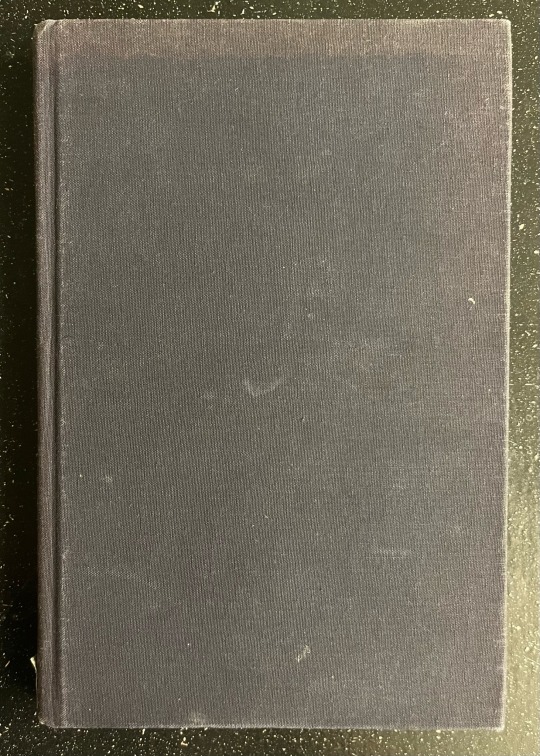
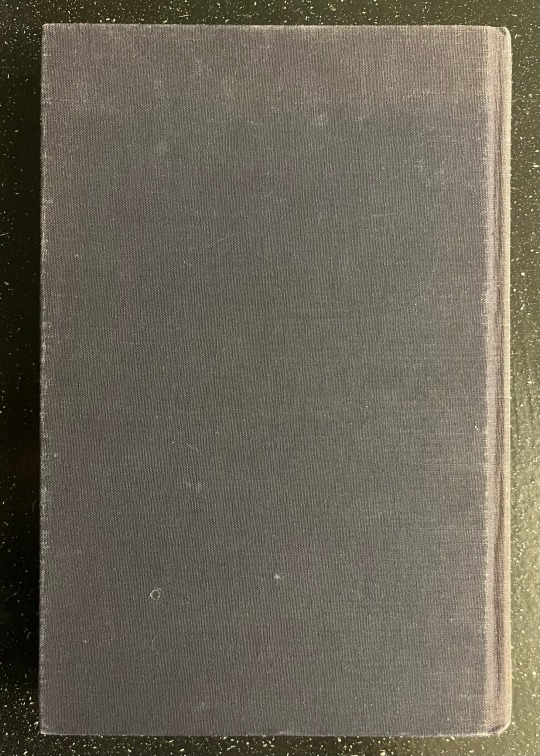

The How
Like the second book by these two I’ve featured (and unlike the first), as a loaner from work. No rhyme or reason, really, other than to better put off reading other things. You understand.
The Text
‘Thinking about space is, first and foremost, thinking about spatial things,’ which is basically what’s going on here. The authors forward a (partial, multifaceted) formalization of (one way to) think about (some) spatial entities (where ‘entities’ is inclusive of objects, regions, and events), the success of which I am not qualified to address. I will at least call it interesting, because I think it is that. Maybe I say so out of unfamiliarity with [sparkle emoji] the literature [sparkle emoji], but maybe I’m right anyway.
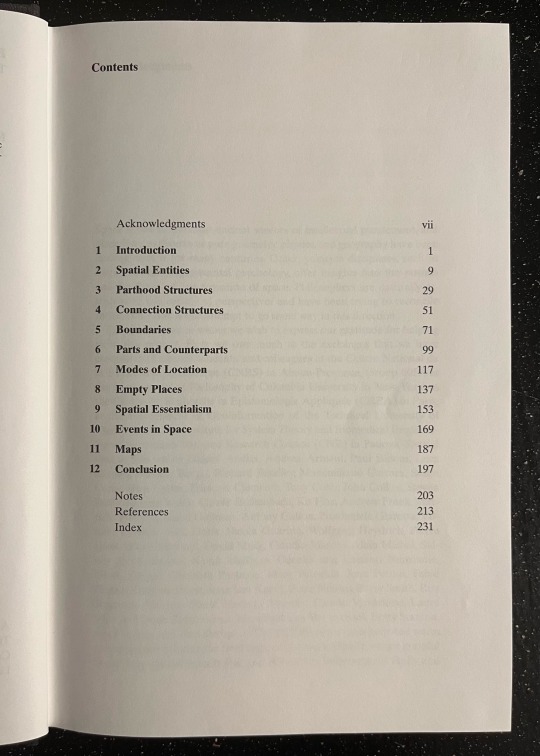
Spatial representation not being reducible to representing space, the project is less than linear. There is a lot of trying ideas out only to reject them, constant mention of several-chapters-ago acronyms and axioms, and the odd diagram of it all to fake you out. Stretched over 200+ pages, the effect is something not entirely unlike listening to someone explain the full plot of the Metal Gear Solid series in 6:47. Most of this takes the form of predicate logic with commentary for garnish, which is (part of) why Part 143 was what it was.
The outcome is a mereotopology (that is, a joint theory of parthood and connectedness) built on mereology similar to their work in Holes and Other Superficialities, plus some ideas about location and events. The final chapter explicates a theory of what they call ‘formal maps’ that flows neither conceptually nor tonally from the rest. I’m sure there’s a reason it wasn’t published as a standalone paper or developed more fully within this text, but I can’t imagine one. Odd. Intriguing, but odd. Oh well.
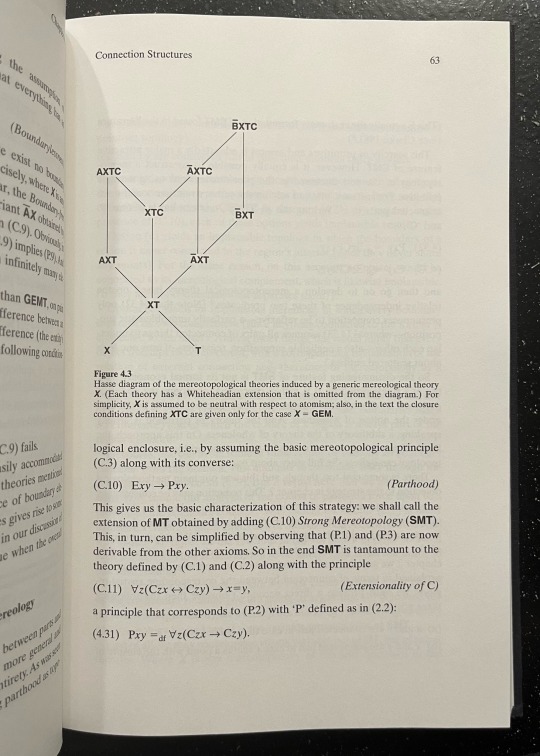
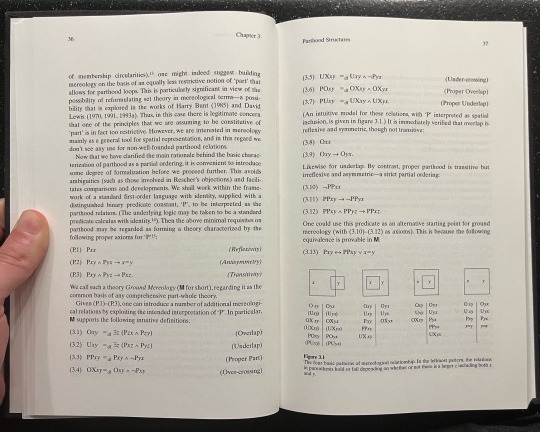
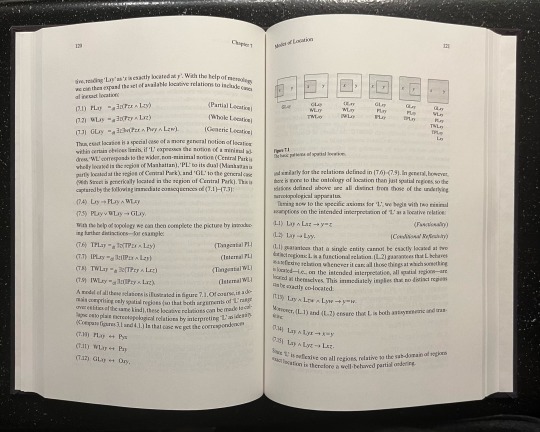
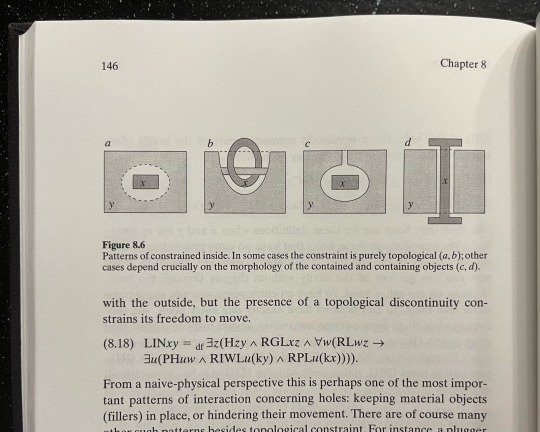
The Object
Times New Roman in font and spirit. Illustrations like Holes; very slightly waxy boards like Insurmountable Simplicities; occasional copy editing errors but very competently set. I do not hate it, even if this copy has seen its share of hard use. Who pencils notes onto the endpapers of a library book?
The Why, Though?
Ill-conceived escapism, yes, but also unexplainable-even-to-myself completionism: I really like Holes and Other Superficialities and, I guess, hope some of Casati and Varzi’s other stuff is similar. So far that’s only very partially true; although the style is familiar it’s a different sort of book, and one that wouldn’t grab me in the same way even if perfectly delivered. Fair enough.
13 notes
·
View notes
Text
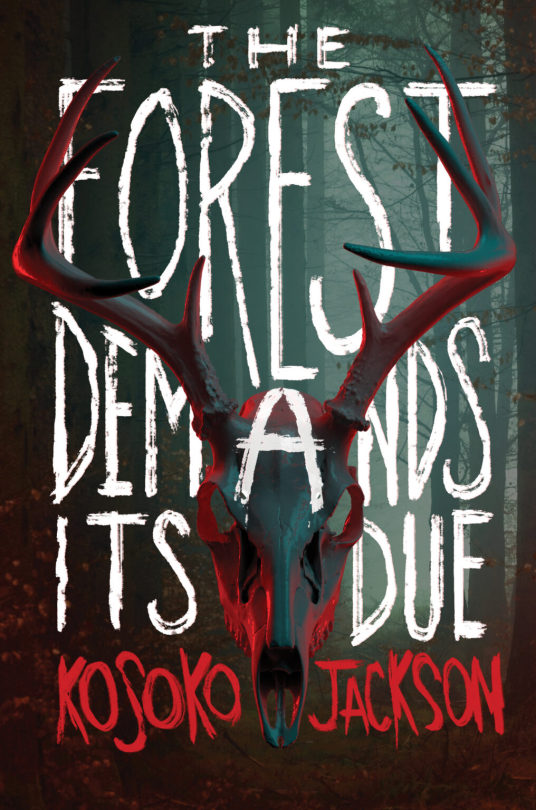

Mini-Review: The Forest Demands Its Due
Title: The Forest Demands Its Due
Author: Kosovo Jackson
Genres: Contemporary/Horror
Pages: 432
Publisher: Quill Tree Books
Review Copy: ARC by publisher
Availability: Available now
Summary: Regent Academy has a long and storied history in Winslow, Vermont, as does the forest that surrounds it. The school is known for molding teens into leaders, but its history is far more nefarious.
Seventeen-year-old Douglas Jones wants nothing to do with Regent's king-making; he’s just trying to survive. But then a student is murdered and, for some reason, by the next day no one remembers him having ever existed, except for Douglas and the groundskeeper's son, Everett Everley. In his determination to uncover the truth, Douglas awakens a horror hidden within the forest, unearthing secrets that have been buried for centuries. A vengeful creature wants blood as payment for a debt more than 300 years in the making—or it will swallow all of Winslow in darkness.
And for the first time in his life, Douglas might have a chance to grasp the one thing he’s always felt was power. But if he’s not careful, he will find out that power has a tendency to corrupt absolutely everything.
Review: There has been a fun trend of Black YA horror being published and I am here for it. Kosoko Jackson’s newest novel, “The Forest Demands Its Due” is another book to add to the list of fantastic horror being written by Black authors for Black teens. This twisty story is not so much scary (at least to me) but feels more like a funky thriller with ghosts, a creepy forest, a curse that needs to be broken, and a mystery that needs to be solved. There is so much going on in this novel but not once does it feel overwhelming. Jackson did such a wonderful job with the world building that all the different elements work together to create a seamless narrative. I was definitely into Douglas’s journey as he discovers his power.
Douglas’s story starts out as a classic fish out of water where he is a relatively new student at an ultra exclusive private high school. After experiencing a tragedy, he is “recruited”, in a way, to the school and his mother given a job as the school nurse. As a Black Queer he doesn’t fit in and experiences bullying, but is trying to make the best of it because he knows “this is a great opportunity and he’s special.” (Yes, the racist undertones are there and are explicitly implied throughout the story.) Douglas does have a sweet heart and when he witnesses a student death that no one seems to remember the next day, he becomes determined to find out why. Douglas ends up at the Headmaster’s office who tells Douglas how special he really is and that Douglas is the key to ending the town’s curse. Douglas is clearly skeptical but goes along anyways and thus is brought into this world where nothing is as it seems. Douglas talks to ghosts, monster things, a god, and is able to wield earthen magic. Through it all though, and this is what I really liked about the novel, is Douglas’s good nature as he is exposed to all the weirdness. He has such a good heart and is always thinking of helping and protecting others. It was never to his detriment, but allowed him to fully tap into his power. I like that he was true to himself throughout the entire story and that is what made him so strong.
Another aspect of this novel that I greatly enjoyed was its social commentary. The racist micro-aggressions that Douglas experiences is not shied away from, nor is the implied racism. Douglas makes note of it as well as the bigotry that he experiences. Even the reason for the curse is a statement on society and also propels Douglas as he tries to end the curse. I would say more but that would be giving away spoilers and this review has been hard to write without giving away spoilers as there are a number of twist and turns that makes “The Forest Demands Its Due” so interesting.
22 notes
·
View notes
Note
climbing into ur ask box
hi hello i am giving u an aeneid excerpt! i've decided to somewhat arbitrarily offer you the first seven or so lines of the first volume. that's a big excerpt, but it's fine it's fine <3
SO i don't have much in the way of Big Reasoning for this, but i associate u a lot with Creation if that makes sense so i thought. oh wait neat idea, i can assign nico the part of the aeneid that's just the author asking the muses for inspiration to create this work of propaganda epic literature!! trust me okay the vibes are important i prommy
Arma virumque canō, Trōiae quī prīmus ab ōrīs
Ītaliam fātō profugus Lāvīniaque vēnit
lītora, multum ille et terrīs iactātus et altō
vī superum, saevae memorem Iūnōnis ob īram,
multa quoque et bellō passus, dum conderet urbem
īnferretque deōs Latiō; genus unde Latīnum
Albānīque patrēs atque altae moenia Rōmae.
--
and the rough translation of these lines:
I sing of arms and the man, who first from the borders of Troy,
exiled by fate, came to Italy and the Lavinian
shores, he was thrown about much both on land and on sea
by the power of the gods, because of the mindful anger of savage Juno,
he, having suffered much besides in war, until he would build a city
and bring the gods to Latium; from whence came the race of Latins
and Alban fathers and the high walls of Rome.
--
so the muses are not specifically addressed in this excerpt, but the beginning of The Aeneid is just virgil explaining the rough plot and asking the muses for inspiration so he can tell the epic mythology surrounding the founding of Rome (that isn't propaganda in the slightest /s)
anyway for commentary, uhhh i'm taking this a little from the Dickinson source i used during college, which is also where i got the full text to grab excerpts from, but i'm not gonna just copy paste and i'm gonna explain in my own words.
so a big thing i want to call attention to for this is the placement of the word 'arma' in the first line.
in latin, word order is generally pretty flexible--not to say it never matters, but it's one of those languages where essentially if all the words are there you can get what's going on, regardless of their order. this is something a lot of poets writing in latin took advantage of, because the placement of specific words can change the connotation.
in this instance, arma (arms, as in weapons) being placed first suggests that this is going to be a story that centers much around war and violence. which, honestly, it does!
for those who aren't familiar with the aeneid, essentially the protagonist, aeneas, is a survivor of the fall of the city of Troy. this epic is, in some ways, a sequel/response to the illiad, following the idea that rome was founded by trojans. (should be noted that the city of troy is fictional, though.)
and this isn't part of the commentaries on the Dickinson site, but i also want to highlight the honestly pretty imperialistic nature of some of these lines, especially in reference to aeneas bringing "the gods" to the people of Italy. because there were already people living in italy before aeneas got there, and the last volumes of this story go over that in great detail.
i will say, in this context, yes, this is referring to specific gods worshipped by the trojans. HOWEVER, the phrasing, imo, places them on the level of importance that they are The gods, and that he is bringing them to the (implied) godless people of italy. while for the most part the aeneid is actually REALLY generous in its depictions of cultures aside from roman culture, i also think it's important to keep in mind the fact that this epic is entirely propaganda (specifically for the emperor augustus), and that does shine through at times like this. the aeneid justifies roman imperialism both subtly and very, very obviously.
finally, i also want to note here that the last line about Rome's 'high' walls is interesting to me, because if i'm remembering right, the word 'alta' is sometimes used in poetry as a euphemism for the gods. i could be wrong, but, well. y'know. this whole thing exists to explain why the romans are the best, so that may have been very intentional.
#talk to the bunnykitty#nciko#ask game#long post#idk how coherent this is lmao#i just really enjoy talking about latin and analyzing latin poetry#and i don't do it anymore#and i want to do it again#follow for more aeneid hot takes (do not) (you will be disappointed)#i should find the most blatant propaganda excerpts lmao that might be fun#multi speaks some latin#that's just my latin tag now ig
5 notes
·
View notes
Text
Library Triage! kinda?
I have soooo many library items checked out right now and I’m making progress on returning none of them; between working overtime and spending way more of my downtime than usual just incessantly watching the same clips on YouTube, I am not reading very much. But I can’t seem to let anything go. So this (even more than usual) is just me trying to make sense of everything so I don’t lose any items this time...
Part 1: DVDs
No Escape: I have watched this already (twice now in this checkout period, including the one with commentary!) so really I should be done with it, but I’m not. I want it close at hand. It’s too good.
The Hollow Crown: Complete Series: the gifs have been promising so we’re gonna have fun with this. Eventually. Right now my ability to handle it is taking one look at a still from any of them and immediately turning into a cartoon with eyes/heart ballooning out of my body, so I am not yet calm enough for that.
The Night Manager: I’m pretty sure this is actually the project I’m going to target next. I know what I gotta shield my eyes about but I also think I can manage the rest of it, and I’m finally interested in the larger story.
Thor 1-3 + The Avengers: for when I’m ready to continue my Loki journey.
(And yet, I’m still over here like, “I gotta go check out those other two movies I want to see. I gotta.”)
================
Part 2: Books
After Perfect - Maan Gabriel: 2 months ago, I pulled several titles off my Goodreads TBR that I thought I might like to try soon. And then...Hiddleston Spiral. Library is already down to 1 copy of this small-press 2021 release (they started with 3 or 4), and I’m genuinely afraid it’s gonna get weeded entirely very soon. But still, I think I’m too far off course now to be in the right mood for this particular romance, which is rare (age-appropriate student/creative writing professor, except the professor is the younger one), so I want to save it.
Harry Potter & The Order of the Phoenix (illustrated): I’ve decided not to reread this one yet, I’m just looking at the pictures, but even that I can’t commit to doing. I have been waiting more than a year for this release to get into my hands; I have to be ready to appreciate them. Block out an hour or so to observe/maybe reread select passages/jot notes on my faves.
The Hungry Place - Jessie Haas: a children’s pony book by an author I like that I really thought I would be more excited about/devour quickly, but instead I’m kind of blocked up about it. Like. There is some sadness here before the happy parts, IDK if I’m ready for it!
Just Gus - McCall Hoyle: speaking of children’s books, a cute one about a dog, companion novel to Stella. It really won’t take me more than 90 minutes to read. Why do I keep putting it off. [edit: go me, I actually started this one in the brief interim between queuing this post and its appearance]
The Essex Serpent - Sarah Perry: still haven’t even opened it, but I WILL whether I fully read it or not.
(Meanwhile: those 20+ books I just bought and was kinda planning to read at least some of soon...) (p.s. I actually have my latest sale post written up! I just wanted to take photos)
+ 5 books I’ve technically read but don’t wanna give back because I love them and love paging through them
+ 3 Taylor Swift CDs -- Reputation for Getaway Car (I don’t think I’m ready to explore further yet, but I have as yet been too lazy to rip it); and Folklore and Lover to play in the car, the former’ cause I don’t own it and the latter ‘cause IDK where I put my copy and am frankly too lazy to look. :P
#library triage#i really need to make sure I know where all these items are#long checkouts are a recipe for disasterrrr
0 notes
Note
Hey, for that send you prompts thing :
AU where Todd works in a used book store, and Neil frequently visits. Neil notices Todd scribbling in the books sometimes, and then putting them back on the shelf. Neil then discretely goes and finds those books and reads the annotations Todd leaves there. Neil notices the books that Todd usually annotes are a certain colour/author/etc and chooses one at random, leaves a note for Todd there?
I dunno if this is a good prompt or not.
- Charlotte
(Can I be a anon friend for you? Like if I get an idea for a fic or hc but don't have the talent like you to write it? I'll sign off all my anons with the name Charlotte)
you can also read it here <3
Todd wasn't doing anything wrong - not really. Was it against the store's policy? Yes. But had someone stopped him? No. So, see. Nothing wrong.
Todd had been working at Little Red Books for about 5 months now. Despite the name, the books weren't red, just pre-used. It was pretty much a thrift shop just for books. (Todd wasn't sure why it's named what it was, and he never really bothered to ask.)
People could come and gave books that they didn't like, or wanted a newer copy of, or didn't have room for, or just wanted to pass down to someone but had no one to pass down the book to.
And people also came here to buy those books.
They had shelves and shelves of books, all filled with memories of their previous owners. Books filled with creases on the corner where someone folded them. Books filled with annotations and notes and childish handwriting on the covers indicating who the previous owner had been.
Todd loved it.
Todd loved opening a book and seeing so much history - so much proof of another life. He loved reading the notes and he loved watching other people flip through a book and notice something like a little misshapen star drawn at the corner from the previous owner and smile softly.
And Todd loved flipping through the books and adding his own commentary. He liked reading the old annotations. It was just... nice. And peaceful.
And its not like anyone could possibly know.
Well, other than this person, Todd supposed, staring at the note left in one of his favorite books.
Todd read any book he could get his hands on. But there were a few he’d visit over and over and this one- The Picture of Dorian Gray- was one of them.
And in between the pages was a little green piece of paper. Of course, this could be left for anyone - not Todd. But as he read and reread the note, he couldn’t help but think it was for him.
After all how many blonds worked here that went through and annotated the books?
Todd bit his lip, suddenly feeling caught. Then he reread the note and flushed.
“To the cute blond worker,
(the blue eyed one who annotates the books)
I hope I'm not overstepping or being creepy, but I've noticed you a lot. How you know where everything is, how you never meet anyone's eye, and how you always annotate books with blue ink.
I just think you're rather pretty and interesting.
I'm not sure how to approach you directly, but I wanted to tell you how much I love reading your notes."
Todd bit lower lip, a little nervous and a little flattered. It wasn’t creepy at all - or not to him at least. A little... strange perhaps. Todd wasn’t sure. He felt a weird mix of his anxiety at someone noticing him but also a little flutter in his tummy. Ultimately, he tucked the note into his pocket and decided to dwell on it after his shift.
But throughout the day he kept on thinking about it and flushing. A customer even noticed it. Which was embarrassing in a different way.
And worse he was the Shakespeare guy.
The Shakespeare guy.
Todd didn’t know his name but he knew a bit about him.
Todd knew he really liked Shakespeare because on one of his first trips to the store, the boy had bought a stackful of his plays. And thus was dubbed The Shakespeare guy by Todd.
Todd also knew he liked poetry because he always sat at the back table and read through some poetry books before choosing one.
He didn’t always buy anything, sometimes he just sat there, reading. Todd was... intrigued by him.
Todd didn’t know his name, but he knew that when he thought something was funny he’d try to stifle his laugh and almost always fail. When something was sad he’d blink fast and look away to take a second to compose himself. And Todd knew that Shakespeare guy was the most pretty boy Todd had ever seen.
He was nice to Todd too. He always smiled and made small talk - and he never got offended when Todd didn’t reply - too anxious to do so - or when Todd took too long to say anything. He smiled softly (and he had the most gorgeous smile in the world, the first time Todd had been so caught off guard he’d accidently scanned his book three times before the guy pointed it out.
He’d only giggled at Todd’s mistake, gently assuring him it was fine.
Todd thought he may be a bit in love.
And now his kind of crush had, once again, caught him being strange. Todd should honestly change his name and move somewhere far away. Like Antarctica.
“Are you okay?” The Shakespeare guy asked, voice tinted with concern as he watched Todd’s eyes dart down and his cheeks turn redder somehow. Todd stumbled over have bitten words and the guy stood patiently, letting Todd collect his thoughts. Todd really liked him a lot.
“Oh, um... I just... It’s nothing. I um well, I got a note. That’s all.” The guy’s thick eyebrows scrunched up.
‘Did you not like the note?” He sounded even more worried. Todd shook his head frantically.
“No! I mean, yes! I mean- I- I liked it. It was um... a sweet note. That- That I think they left it for me - I mean I’m not. I’m not sure but I just-”
“Was it a love letter?” the guy interrupted, lips drawn up into a mischievous smile and eyes filled with something knowing.
Todd’s eyes lingered a little too long on his smile before he shook his head.
“N-no.” The guy didn’t look like he believed him but he nodded anyway. Something flashed through his eyes and Todd wondered what it was desperately.
Then he took the books that he had been buying and left.
Todd let out a sigh of relief.
He hoped the cute boy didn’t think he was too strange.
But just as Todd calmed down completely, the door opened again. Todd turned towards it, about to welcome whoever the costumer was, but The Shakespeare guy was walking in again. Todd straightened up, hands uselessly coming up to fix his hair. The Shakespeare guy shot Todd an apologetic smile before making his way to the table he’d sit on and grabbing something.
“Just forgot this!” he called out, walking towards the door again, waving a green notepad.
Todd nodded, a little caught up in that green notepad because it looked the same shade as...
“W-wait!” The Shakespeare Guy jumped at the shout but paused all the same. He turned around, fixing Todd with a curious look.
Todd flushed - it probably wasn’t the same color. Shit. What was he thinking? There’s no way that he’d have left the note. Not the most gorgeous boy known to man. Not to Todd.
“N-nevermind.” Todd said, looking down. There was silence and then footsteps towards him.
“Hey,” the boy’s voice was soft, “what’s up?” Todd fiddled with his hands before chancing a glance up. The boy was looking at him with the gentlest eyes, Todd could melt. Todd opened his mouth to respond before closing it again. Then he reached into his pocket and took out the note, placing it in front of the boy. Then he looked at the notepad, still in his hands.
It was the same green.
“Oh um...” the boy’s voice was hesitant and Todd was sure he was about to let him down and that Todd was wrong and- “you, uh, figured it out...”
Todd’s head shot up, eyes wide in hope.
There was no way.
“I hope it wasn’t creepy,” Todd shook his head quickly and the boy smiled at him, “I just... I just like you a lot. Um, I wanted to ask you out, actually.” Todd audibly gasped and the guy’s smile widened. His voice lost any waver as he spoke again, “So will you? I mean, go out with me? Please?”
Todd stared at him with wide eyes, “I- I don’t even know your name...” he replied. The boy paused visibly before flushing red.
“Oh! I never told you? Neil. My name’s Neil Perry.”
Todd grinned. “Todd Anderson. Um... you can meet me here... maybe seven today? For our date.” Neil stared at him before nodding quickly.
“Yes, yes! 7′s perfect. You’re perfect!” Then he waved and ran out the door.
Todd couldn’t keep his grin down the entire day. And at 7, Neil was there to meet him.
//
EDITED BECUZ I MADE LIKE 45845347 MISTAKES AFJKDLFJALKD
idk if this is what you wanted but i hope you liked it <3
im sure u’re very talented ! and you should totally write ur ideas if they’re even half as good as these
but you can send them to me too! I’ll be looking forward to it <33
i had a lot of fun writing this <3
#anderperry#todd anderson#todd and neil#neil perry#neil and todd#deadpoets#dead poets society#dead poets headcanons#dead poets#dps fandom#dps#dead poets fanfic#dps fanfiction#anderperry fanfic#anderperry fanfiction#anderperry fic#anderperry drabble#todd x neil#neil x todd#todd anderson x neil perry#dps headcanons#neil perry headcanons#todd anderson headcanons
87 notes
·
View notes
Text
To the Stars Who Listen- Part 7
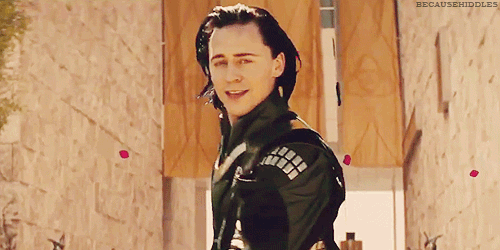
Author: hela-avenger
Word Count: 1977
Summary: When Loki desires to never fall in love, he casts a spell to prevent such a thing from happening. Except, well, in the matters of love and magic, you never know the result it may have in the end. Loki x Reader
A/N: This one’s a bit long and the next one will also be pretty long. I’ve just got a lot I want to include! Tags are open! (Send me an ask/message/response.)
TTSWL Masterlist
Loki scowled as you led him once more out of the beaten path. He’s forced to descend down the damn hill again until you are content at the bare field that laid ahead of you. Loki glares at the sun that is beating down at them but is relieved at the cool breeze that flowed through the nearby trees.
“Why did you bring me out here again?” Loki asks. “Isn’t the point of an indoor training facility is to train indoors?”
“After the incident from yesterday morning I decided it would be best if we trained away from everyone,” you answer. “I really don’t need to hear more of my friends confessing things to me.”
“Come on,” Loki drawls. “I’m sure a tiny part of you enjoyed it.”
You hadn’t and yet a sharp sting runs down your spine at his words. As if your power was reprimanding you for lying to yourself. You try to ignore it but involuntarily shiver and Loki grins at the action.
You hate his grin.
You don’t necessarily hate him even though you had many reasons to.
Loki destroyed New York in an attempt to rule over mankind. He also got his ass chewed out by his parents when he got sent back home.
Now he was here, claiming to be better, reformed.
You had yet to see it but noticing how miserable Loki was in the past months roaming the halls of the Tower you knew the slow punishment was certainly fitting the crime.
Though now, things seem to be working out for him.
“Look, I don’t want to question your superior knowledge on this matter but there has to be another way for me to expel the excess power I keep surging,” you state. “I can’t be blasting things hours at end so I don’t physically implode.”
“There are other ways but they’re more complicated,” Loki answers as he crosses his arms. He was hoping that would put an end to that question but you pestered on.
“So?” you ask him. “I can handle it.”
Loki snorts.
The arrogance you held was comedic. He would blame your humanity for the awful trait but his brother and his merry band of friends were endowed with it too.
“You’re asking me to teach you how to wield your seidr,” Loki explains. “In mortal words that should help you comprehend, you want me to teach you how to cast spells. It will expel your powers but not as quickly or as greatly as the siphons will.”
“So is that a yes?” you ask him unable to fight the smile on your lips. Loki rolls his eyes but you continue. “Come on. I’m trying to find the silver lining to this new power. If I can cast spells like a witch then I want to learn.”
“I take offense to the word witch,” Loki mutters, noticing how your fingers fidget with the gold siphons. Your obvious discomfort of them was written so plainly on your face. “Even if you could cast spells, you’ll still have to wear and use the siphons daily.”
“Are you agreeing to teach me then?” you ask him. For once you were excited at the prospect of this lesson.
“My spells of expertise reside on tricks and lies,” Loki explains. “They won’t work for you so I will have to figure out spells that rely on your ability of the truth.”
“Seriously?” you deflate. “There’s nothing you can teach me today?”
“Well I had planned to teach you how to pull out secrets and confessions in a more covert way, but you won’t allow my lesson, will you?”
You shake your head and Loki rubs his eyes tiredly.
“Just teach me something simple!” you offer. “Something that you as a kid managed to pull off and then I’ll subject myself to your lesson without questions or commentary.”
Loki watches you silently realizing that you needed this distraction. It’s been obvious from the beginning that this power was something you hated. He was confused by this anger. Had it been him in your shoes, Loki would be elated to be more powerful than before.
Of course, you were a different breed.
From what he could tell by his observations, you were beloved by all. Strong, kind, and smart to be considered at the same level as many of these heroes you surround yourself with. You did it all by yourself and with the single motivation of wanting to do good for the world.
Your intentions are and have always been so pure that Loki wonders if that is why the Book of Veritas deemed you worthy to release its power into you.
“I can teach you how to shield…”
“Come on, I know you have something more fun up your sleeve,” you interject.
Loki tries to think but he finds himself distracted by the warm smile on your face. He’s seen it in the company of others but never had it been directed to him. You had never spent this much time with him to deem him one.
“I uh… I cast childish spells. They all rhymed too. I don’t think…”
Loki doesn’t understand why his mind drives him to that particular memory again. Of floating rose petals and impossible possibilities. He’s horrified by it. Especially as you take notice of it.
“You know of one,” you point out, your smile widening. “What is it?”
Loki hesitates but he knows that if he withholds his response for too long you’ll be onto him in seconds. You’ll pry the answer out of him. The truth coming out one way or another.
“It was a foolish love spell.”
“A love spell?” you repeat amused. “Little Loki wanted to fall in love?”
Surprisingly enough, you don’t laugh or make fun of him. Loki is wary by the lack of it but answers your question nonetheless.
“I desired the opposite actually,” he explains. “I don’t wish to ever fall in love.”
“And why is that?”
“I’m not going to answer that,” Loki states.
You’re very curious to know the answer, but Loki’s privacy was one you had yet to invade without his permission. He deserves to keep his secrets in the same way that you didn’t always deserve the truth.
“So how do I cast this love spell?” you ask him.
“Wish to fall in love?” Loki asks, turning the focus on you.
You shrug carelessly, “Maybe.”
“Don’t have enough admirers already?”
“What are you going on about?” you ask with a roll of your eyes. “I don’t have any admirers.”
“You can’t be serious.”
You stare at him confused and Loki sighs in response.
“You are.”
Loki looks away in exasperation causing you to fidget again.
“Just spit it out already,” you exclaim.
“Bucky and Sam admitted they found you attractive yesterday morning,” Loki states. “And don’t get me started on the Captain…”
“Steve doesn’t see me that way,” you sigh. “We’re just friends. All of them are my friends.”
“Well, all of your friends are attracted to you.”
You can’t avoid the sudden warmth that encompasses your face as you realize he’s being honest. You try to stammer out a response but the words are useless.
“I uh… I mean… They’re not…”
You take a deep breath trying to ignore Loki’s obvious amusement.
“I don’t see any of them that way,” you respond curtly. “They are attractive men. Actually very attractive. I’m honestly surprised that the entire team hasn’t been poached by a model agency by now.”
“You’re straying away from the point.”
“Right, well…” you stumble. “The point is that I don’t find myself romantically attracted to them. They’re great guys but I need more.”
Loki doesn’t really care for your explanation and yet he finds himself intrigued.
What more could you possibly want?
You had the whole world in your hands and yet you desired more.
There was only one way to find the answer and he dreaded the mere thought of it.
“The love spell needs some binding elements,” Loki states. “I used rose petals but you can use whatever you can find.”
You can’t help the smile on your face as he conjures a small gold bowl in his hands for you to use. You eagerly take it from him and Loki watches as you skip away to collect whatever you can find.
“You are going to bind your desires to these elements so I would suggest you choose wisely.”
You heed his warnings before coming back to him.
“Ok I’ve got them,” you tell him. “What now?”
Loki looks down at the filled bowl and scowls.
A few autumn leaves, daisies, and blades of grass.
“Interesting choices,” Loki mutters. “Do you have your spell in mind?”
“No,” you answer. “But why don’t you tell me how yours went and I can just… copy that.”
Loki notices the mischief laced in your smile. Your intentions were so blatantly clear because you had no wish to hide them from him. He wonders if this was a side effect of your powers or if it was from your original character.
“A yellow rose petal for friendship, a white one for youth, a red rose petal for love and a blue one for truth,” Loki states. “...And that is all you’re hearing from me. The rest is none of your concern.”
“Fine,” you smile. “Keep the juicy bits to yourself.”
You take a deep breath and look down at the contents inside your bowl.
“For my heart I wish to have... a man who loves me with all that he has. Blades of grass to signal he’s lean. A fighter, a lover, a man of means. Autumn leaves and daisies of plenty. I hope to find love when I least expect it.”
Loki could taste the magic in the air. He closes his eyes and feels the warmth and softness brush against his skin. He waits to hear your shocked gasp as the elements in the bowl begin to float away but it never comes.
“Is something supposed to happen?” you ask him as he opens his eyes to find the bowl still filled. “I feel like something should have happened.”
“You’re indeed right,” Loki frowns. “Your binding elements should have flown away to find your perfect pair.”
“Did I do it wrong?”
Loki shakes his head. He could still feel the residue of your magic and the spell was perfectly casted.
“Repeat it again.”
So you do feeling the bowl grow warm in your hands.
The magic is more pungent now and Loki feels how heavy it lays around them. Before he could decipher the phenomenon, the entire contents of the bowl blew up between them. You and Loki are covered in the debris of grass, shrivelled up leaves, and daisy petals.
“Ok,” you cough out. “Was that supposed to happen?”
“Not at all,” Loki scowls as he brushes off the remains from his person.
“What does it mean?” you ask as you pull off a petal from your hair.
The magic was fading away from the air and Loki had no explanation to offer as to why your love spell had gone wrong.
Perhaps your demands were too much, but if that were the case that meant Loki’s spell had actually worked while yours didn’t. Someone who wanted love couldn’t achieve it while someone who didn’t had.
Loki lets out a sigh.
“I have no idea,” Loki shrugs as he takes the bowl from your hand and makes it disappear. “You might have infused too much of your power in it and burnt out the spell.”
You can’t help but chuckle.
Loki wasn’t necessarily lying but he wasn’t telling you the entire truth. The thing that surprised you immensely was that you really didn’t care to know what he could possibly be hiding.
Not this time. Perhaps not ever.

TTSWL Tag: @catsladen @is-it-madness @manyfandoms-marvel @mejusttryintogetby @illogicalfangirl @ariel-snow-tmnt @islinglivesinshire @musicconversedance @missmadwoman @smaranshakthi @adaydreamingdragon @poetic-fiasco @like-a-wildfire @jasminecalia @ha-tep @charbokbok @setsuna-meiou31 @ms-blvck @country-cowgirl-101 @bepo-is-sorry @hufflautia @waitforthehurricanrose @fictionalhoomanofnowhere @sanniegirl1214 @telenari @anonymouscastiel12
Loki Tag: @unicorniorosacomefrutillas @thesilentbluesparrow @oddly-drawn-muse @josiehosiedaninja @hp-hogwartsexpress @sadwaywardkid @wolf-lover74 @sizzlingbarbarianglitter @sigyn-nightshade @aoirohi @horsesandwolvesaremyanimals @just-a-donut-who-reads @day-dreaming-fox
All Works Tag: @jmb959 @astudyoftimeywimeystuff @hellocookiecutter @steve-rogers-personal-hell @buckybarnesyard @not-zari-tak @strangersstranger @thefridgeismybestie @ariel-snow-tmnt @badhollandfluff @what-a-flammable-heart
#loki x reader#loki x ofc#loki x oc#loki x you#prince loki x reader#prince loki x ofc#prince loki x you#prince loki x oc#loki series#loki fanfic#Loki Laufeyson#loki odinson#Prince Loki of Asgard#reader fic#loki#marvel au#thor au#to the stars who listen part 7#ttswl#fluff#angst#practical magic au#reader-insert#you fic
190 notes
·
View notes
Photo



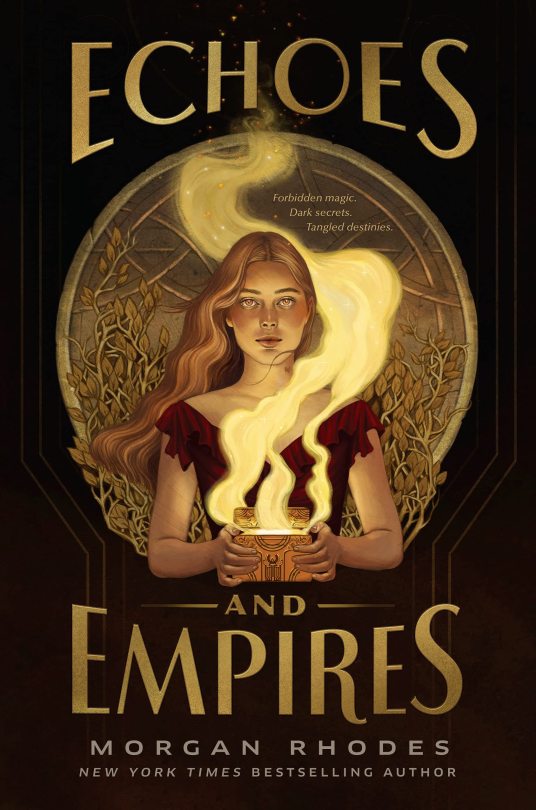

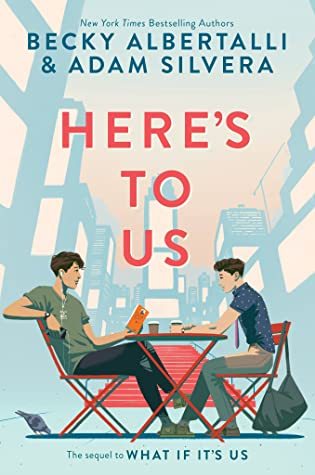
REVIEWS OF THE WEEK!
Books I’ve read so far in 2022!
Friend me on Goodreads here to follow my more up to date reading journey for the year!
___
13. Living-Room Matsunaga-San Vol. 7 by Keiko Iwashita--⭐️⭐️⭐️⭐️
Still trying to get used to that age gap and everyone being cool with it LOL
I did love the dichotomy between the two guys interested in our MC. I think this volume was definitely more angsty and is gearing up for some dramatic volumes in the future. I’m honestly here for it? This feels like the type of series that will be extra enjoyable the more chaotic it gets.
Also, Matsunaga is freaking hilarious. There’s a section where he’s just screaming about a topic that would normally make someone hella embarrassed but he’s just so pure with his outbursts LOL.
I really like all of these characters. Especially the cat 😂
Onto the next volume!
___
14. Living-Room Matsunaga-San Vol. 8 by Keiko Iwashita--⭐️⭐️⭐️⭐️⭐️
I’ll admit it, this was a really cute volume. Plus, we see more of a side couple forming and I’m very into it.
My heart also went out to the other love interest because he seems so sweet and caring. But the confession scene between the MC and the man she loves was kind of adorable (especially that last chapter).
I’m curious how the author will finish this series in the next few volumes!
___
15. Komi Can’t Communicate Vol. 12 by Tomohito Oda--⭐️⭐️⭐️⭐️
It’s always a little bit rough getting back into a series after a long time, but as I read this volume, I was slowly reminded of how cute this series is.
A friend asked me the other day when the MC and the love interest will kiss and I said that she was in for a long ride because this series is suuuuuuper slow burn. But I love the small moments, like in this volume, where you can see the cracks forming to let through that shared interest they have in each other.
Anyway, this was cute and I always love their summer vacations because it helps Komi socialize more and come that much closer to overcoming her social anxiety!
Onto the next volume!
___
16. Echoes & Empires by Morgan Rhodes--⭐️⭐️⭐️⭐️.5
I read this one for an interview I have coming up on the 18th with the author over on Indigo’s Instagram page at 7pm! Thanks to the publisher for my physical copy!
I went into this one a little wary because of the rating. It’s not an awful overall rating, but I’m always wary when a book has that rating only days after its release. But I’m grateful for the wariness because it helped curb my expectations.
This book was a lot of fun! I wasn’t expecting the enemies to lovers trope (hi, I don’t read the synopsis of books before reading them), and I wasn’t expecting to see the character growth that I did with the main character (especially when she’s introduced as this ditzy and image-obsessed character).
I loved the forbidden magic aspect and social commentary woven into the story and how some of the topics are so timely to what our current day society is struggling with (minus the magic). I also appreciated the exploration of grief and how it can make mad-people of us all.
I’d recommend this one if you love fantasy and an unlikely pair setting off on an adventure for answers.
___
17. Komi Can’t Communicate Vol. 13 by Tomohito Oda--⭐️⭐️⭐️⭐️⭐️
This was such a sweet volume and shows that Komi is so much more capable than her anxiety allows her to feel. I loved the whole “tadano deficiency” and “komi deficiency” thing.
Ugh, forever waiting for more cute things to happen like it did a few volumes ago 👀
___
18. Here’s to Us by Becky Albertalli & Adam Silvera--⭐️⭐️⭐️⭐️
I was sent a copy of this one by the publisher because I will be interviewing both authors on Indigo's instagram at 7 PM EST on January 20th. This did not affect my review in any way.
I will admit that the first book took me more than one reading for me to fully appreciate and enjoy the storyline. I was scared that this would be the case for this one too but...I actually really enjoyed this one?
The characters are older and while I would classify this as more of a new adult read than YA, I can understand that need to give readers a more solid conclusion in this romantic contemporary story. One of the reasons why I think I enjoyed this one so much more because just like their ages, the characters matured a lot. Arthur was a lot more likeable (even if he spent most of his time uncertain and confused about his feelings), and Ben was a little more of a realist. In short, what I think happened to them was that they grew up and you can definitely tell.
I enjoyed the pacing and how the multiple relationships were handled in this one and I'm frankly happy that we got this concluding book (even if, again, I wouldn't classify this as YA, especially with that conclusion.)
This was such a pleasant surprise, truly. Rarely do we get a second chance to see characters interact in a story that at one point was labelled complete.
Also, LOVED the inclusion of Spanish. Another pleasant surprise!
I'd recommend this for readers who both enjoy characters who are naive when it comes to love, but mature and grow in the sequel to the initial story about their naïveté.
___
Have you read any of these books? Would you recommend them?
___
Happy reading!
#books#bookish#booklr#bookworm#bookaholic#bibliophile#book blog#book blogger#Features#on books#on reading#read#reading#reader#review#reviews of the week#reviews#book review#my writing#my opinion
5 notes
·
View notes
Text
Menorah Lights, Blessing of Life

Author: @alliswell21
Prompt: I would LOVE to see some Everlark Hanukkah fluff there’s way to little out there right now. [submitted by anonymous]
Rating: T - for non-explicit: adult situations, childbirth description, and breastfeeding.
Canon typical violence. Vague reference to a war zone/conflict.
This work contains religious and cultural imagery and traditions. There’s also some use of the Yiddish language, as well as some Hebrew. There will be a glossary and more in-depth commentary at the end of the fic, when this piece gets cross posted to AO3 in a few days. Peeta makes a quick reference to 1 Samuel 1:27 towards the end part of the fic.
Author’s Note: Thank you, Anon, for this prompt. I have to be honest, and disclose I’ve never witnessed a Hanukkah celebration personally, and most of the events depicted in this story concerning the festival is a product of hours of research. I apologize for any inaccuracies or if I’ve inadvertently misrepresented any cultural or religious aspect of the holiday.
Extensive thanks to @rosefyrefyre, who was kind enough to beta read, spell check my Hebrew, direct me to some great sites to aid my research, and serve as the best resource for Judaism accuracy I could’ve asked for! Rose, I always learn something from my interactions with you. I’m grateful for your willingness to share your knowledge.
***Hannah: Hebrew origin. Means: ‘grace’/‘favor’; attributed meaning: ‘He (God) has favoured me with a child’.***
Happy Hanukkah to those celebrating the holiday!
————-
The house is reverently quiet, despite being crammed to the gills with all our family and friends.
Peeta checks his watch nervously for the fifth time in ten minutes. He’s so rigid, I know his leg will bother him so much tonight, he’ll take hours to fall asleep.
I smile at him, making a mental note to warm some lavender infused oils to massage the stump of his leg. It’s the least I can do for my husband.
Peeta lost his lower leg protecting me from shrapnel during an attack while deployed to the Middle East some 16 years ago. I was rendered deaf in my left ear on the same attack…we are a perfect match, my husband and I; he has to wear a prosthetic leg to get around, I have to wear a hearing aid, and that doesn’t even begin to cover the burn marks and other scars we sustained in the service.
“I think we should…” he says quietly, motioning to the small table we placed by the window earlier.
I turn to my cousin, Johanna, and nod.
Jo winks at Peeta and shuts the lights off, while I pull back the curtains from the windows and tie them up, revealing a waning sunset over the rooftops of our neighborhood.
Peeta stands a pace behind me, transfixed by the slim line of flaming orange in the horizon being swallowed by deep purples and indigos of the falling night. It’s Peeta’s favorite color.
“Almost time, Katniss!” he whispers, giddy, placing a match box on the table at the foot of the menorah.
There’s a soft buzz behind us, which means everybody is shuffling closer to the window. Outside, the world is busy with cars driving by, splashing the dirty slosh of melted snow accumulated on the ground from days ago; a dog barks somewhere in the distance, and a couple of people hustle home; but the thing that really catches my eyes, is that in a few houses down the street, candlelights start to flicker to life on windows and front porches, announcing the start of Hanukkah.
“Should—should we do it?” Peeta asks leaning closer to the window pane, clearly seeing the other houses already lighting their candles.
“There’s still a sliver of sun. They just can’t see it because they’re facing our way, against it.” I mutter back.
This is Peeta’s first Hanukkah as a host, so he’s a little eager. In fact, my beautiful husband was beside himself when everything fell into place for us to host tonight’s celebration. If he could’ve gotten his way, we’d have everyone over to light the menorah the whole eight days of the festival. But, we are expecting the arrival of our very own little miracle any day now, so hosting the first day was a very generous compromise with our family.
The thought warms me inside, and I caress my protruding stomach absentmindedly, staring at the darkening sky.
The sun finally sinks. “Now!” I grin at my other half.
Peeta grins back, handing me the candles. Two of them, to be precise; long and blue. If my Tatte —my father— were here, he would’ve insisted we used olive oil and wicks instead, but it’s only Peeta’s first Hanukkah leading, and he’s so nervous about the whole thing already…candles are perfectly acceptable.
First, I place the shamash— “Shamash means helper candle, Katniss,” Tatte would explain— in the middle peg of our menorah, so it sits higher than the rest. Then, I place the one other candle in the rightmost holder, to signify today is the first night of the Festival of Lights.
Peeta passes me the matches, and I light the shamash. I smile at him, encouragingly, and mouth the words: “Your turn,”
He takes a deep breath, wiggling his fingers at his sides, and then starts reciting the first blessing: “Baruch atah Adonai Eloheinu melech ha-olam, Asher kid-shanu bi-mitzvo-tav vi-tzee-vanu, Li-had-leek ner shel Chanukah.”
His Hebrew isn’t perfect, but he recites the whole prayer exactly as we practiced.
My mother, who’s standing with Peeta’s family, translates quietly, to not disrupt too much, “Blessed are You, Lord our God, King of the universe, who has sanctified us with His commandments, and commanded us to kindle the Chanukah light.”
Peeta waits a moment, and then recites the second prayer: “Baruch atah Adonai Eloheinu melech ha-olam, Shi-asa nee-seem la-avo-teinu, Ba-ya-meem ha-haim baz-man ha-zeh.”
Again, my mother translates, “Blessed are You, Lord our God, King of the universe, who performed miracles for our forefathers in those days, at this time.”
Peeta’s blue eyes shine joyfully in the dim of night.
“Baruch atah Adonai Eloheinu melech ha-olam, Sheh-he-che-yanu vi-kee-yimanu vi-hee-gee-yanu laz-man ha-zeh.”
He finishes the third blessing, which we only say on the first night, with utmost reverence, and holds my gaze for only a second.
My mother translates this prayer as well, “Blessed are You, Lord our God, King of the universe, who has granted us life, sustained us, and enabled us to reach this occasion.” She explains this one we only say once, during the first day, but the first two, we recite every night.
I take the shamash from its holder and tip the flame into the wick of today’s candle, so it starts the mitzvah of the night. After the light has been kindled, we —the ones in attendance who speak Hebrew— sing Ha-nerot Halalu together.
When we finish, my sister, Primrose, starts singing Maoz Tzur, and Peeta turns puppy-dog eyes on me, because he loves my singing.
I chuckle ruefully before opening my mouth and letting the lyrics spill like second nature. The rest of the attendees join in singing, and suddenly everyone is participating in some way. When the song ends, another one starts, and the atmosphere grows animated and joyful the longer it goes. As it should!
Peeta’s brothers came with their families, so he goes to them to chat. My mother has been sitting with them, explaining the proceedings, since it’s the first time they’ve joined us for Hanukkah.
The candlelight flickers from the menorah, the only light in the room, just as we finish another song, and then Uncle Haymitch staggers into the middle of the floor, shoving his hands into his pockets. The children peer up with interest, because most of them have known Haymitch long enough to guess what’s to come.
Haymitch moves his arms just a fraction, and all the kids slip out of their seats like an exhale, and then, the paunchy, ol’ grump is throwing small, shiny, gold disks up towards the ceiling, crowing: “Gelt! Gelt! Gelt for everyone!”
“I think he believes he’s some kinda middle-aged, Jewish Oprah!” Blight, Johanna’s husband, cackles somewhere behind me, as the children descend like locusts on the chocolate coins wrapped in gold foil scattered all over the room.
Peeta encourages his younger nephews to get in on the fun.
Between all three of our siblings, Peeta and I have seven nephews— two of them are teenagers— and one niece.
The adults shake their heads and smile from the sidelines, watching the children in merriment.
When all the gelt has been collected from the floor, Peeta asks the children if they would rather: eat, play dreidel, or hear a story. Since the oldest child in attendance is 8½, the kids settle on a story pretty quick.
I sink into the cushions of our plushest chair to watch my husband corral the little ones onto the rug for their story; one of my hands rests lazily on my heavily pregnant belly, while I hold a half eaten sugar cookie in the other one.
“So…who can tell me what we’re celebrating for the next eight days?” Peeta starts.
There’s a soft chorus of kiddy voices calling “Hanukkah!”
“That is right!” Peeta agrees, his eyes are wide, excited, merry, “and Hanukkah is a very important party, because it reminds us of the Miracle of Lights and the victory of the Sons of Israel over the mean ol’ gentiles—“
“Mamme says gentiles aren’t ‘all’ bad!” cries out Bekka, Johanna and Blight’s little girl, who looks like a carbon copy of her mother, except with long, wavy hair.
“Um…you’re right, I should’ve said ‘Greek invaders’ instead of gentiles…my bad—”
“Uncle Peeta…” one of our nephews— on Peeta’s side— blinks owlishly at him, “What’s a gentile?”
“Non-Jewish people,” says Asher, one of Prim’s twins.
“Oh…like Muggles are non-magic folk?” asks another of the Mellark boys.
“I guess so,” answers the other twin, Aspen.
“I don’t think we are Jewish,” comments one of Peeta’s nephews, turning inquisitive blue eyes to my husband and then to his own parents, “Are we?”
“No, buddy, you aren’t a Jew—“
“Uncle Haymitch says gentiles are helpless,” interrupts Aspen, shaking his head sadly, “He says the goyish thing gentiles do is putting mayo in their pastrami sammiches! So, if neither of you don’t put mayo in your pastrami, then you’re alright. You’re mishpachah, Bran!”
“Um…what does that mean?” asks Bran.
“We’re your mishpachah, right, Mamme?” inquires Asher.
“It means ‘family’,” explains Prim, making the Mellark boys look relieved, and even proud.
“Are you a gentile too, Uncle Peeta?” asks Asher, “Uncle Haymitch says you used to be his favorite Shabbos Goy of all times before you married Auntie Katniss.”
I almost choke on my cookie.
Peeta wheezes out a tiny chuckle, but is interrupted by my enraged sister.
“Boys!” Prim rushes from her chair, her daughter half asleep in her lap; she dumps the toddler into her husband’s arms to stand in front of the twins with her hands on her hips. “That is not nice! What have I said about repeating all the mishegas Uncle Haymitch says?”
“Not to…” the twins mumble contritely.
“Oy! I’m sitting right here, Sunshine!” Haymitch calls out. “Plus, kinder wisdom,” he pronounces it the Yiddish way, like the start of kindergarten, “it’s still wisdom!”
The twins are 7, but they can be a menace and clever to boot.
Haymitch continues, “Everybody knows the Boy used to be pretty helpful back in the day. I was almost sad when Sweetheart finally snatched him up, despite it being the smartest thing she’s ever done,”
“Haymitch…” I ground a low warning.
It’s a well known fact I kept digging my heels in against Peeta’s subtle advances for years, despite having feelings for him myself; I’m grateful my beautiful husband persevered though, because looking at him now, I can confidently say that our marriage, our family, would’ve happened anyway, despite my deep seated fears, the physical and mental toll being in a war zone took on us both, and all the heartbreak in between…
Unlike my mother, Peeta did not convert to Judaism in order to marry me. He did that on his own, way before I agreed to make our odd relationship official. I tried to persuade him from converting though— he does love Christmas and bacon— but again, he was committed to our faith with an iron will only the grave can quell.
“Eh!” Haymitch waves me off, “Nobody can win with you girls. Not even kvelling about one of your husbands!”
I sink deeper into my chair, sufficiently mollified. The old man can gush all about Peeta all he wants, as long as he doesn’t comment on me.
But Haymitch has a big mouth; he used to give me a hard time for my apparent ‘prickly personality’, often telling me I was so surly, I was practically gornisht helfn—beyond help—and once, he even said, I was as charming as a slug. I retorted he was probably looking at a mirror, and that was the end of that.
When Peeta started hinting at wanting more out of the casual arrangement we’ve had since the Army, and to my chagrin, two more suitors sprung out of nowhere, Haymitch had the gall to tell me that before Peeta, I was as romantic as dirt. Peeta gave him an earful for that one, though. It was glorious seeing Haymitch properly chastised by his favorite Shabbos Goy.
I giggle at the memory.
I finally relented a couple of years ago, letting my fears go. Haymitch was the first to congratulate me when I announced I was dating Peeta, like a normal couple. My uncle fixed me with a stare that said he expected me to really try, because this boy was a true catch, or as he called him then, “a mensch if he ever saw one.”
I happen to agree.
I sigh, massaging my ribs where the baby is digging its tuchis in.
Haymitch gets away with a great deal of things on the simple account that he was the only person who actually accepted, and welcomed our mother into our family, when she married our father. Everyone else called her an opinionated shiksa behind my parents’ backs, probably thanks to my Bubbe…dear old Grandma really disliked the idea of my father marrying a gentile girl, despite being clear as day how much they loved each other.
My sister glares at Haymitch too, then turns to her sons, “It’s the first day of Chanukah, nu?” The boys nod in affirmative, “Then be good, so Uncle Peeta can finish the story—“
“But, Mamme…we know the story!”
Prim gives them The Look and shuts them up right away. “Bannock, Graham, and Bran don’t know the story. They’re our guests, and we are called to be hospitable to everyone, right?”
I stare at Prim with mild amusement. She’s such a MOM!
“Yes, Mamme.”
I wonder if I’ll be able to master ‘the stare’ as well as my baby sister has?
Prim told me once, that everything she knows about mothering, she learned from the years in which I took care of her, after our father died, and our mother fell into a debilitating depression that almost killed us all from starvation and hebetude.
I have mixed feelings about that assessment, first, because: At first I was just trying to keep our situation hidden from others, so I made sure Prim and I were clean and presentable for school, that all homework was made on time, that we studied our Torah lessons, and that we attended Hebrew school without missing a class. I made sure Prim ate at least once a day, even if that meant I went without.
There were things I couldn’t provide for my sister, simply because I didn’t know how, and when the pantry was empty, I started secretly raiding the trash containers behind the stores in our neighborhood.
I was 11 then.
That’s when the first and only interaction with Peeta— or as I knew him then: the baker’s son— occurred before the Army.
Peeta had been watching me steadily lose weight and figured something wasn’t right. Then he saw how I dove out of his folks’ bakery’s garbage container and emerged empty handed, because trash had already been collected.
Instead of sneering, bullying me or calling the police, Peeta gave me two, fresh loaves of bread— the chiefest of foods in our culture— and thanks to his generosity, I figured out how to keep Prim, mother and myself fed when money was tight, hunting squirrels and little birds, long enough for my mother to find the strength to get the help she needed to get better.
Secondly, in my adult life, I’ve learned to appreciate our mother’s position. She had a really hard time with life in general. Her family turned their back on her when she converted to Judaism, yet people in our community mistrusted her because of my grandma’s own prejudice, the fact that my mother was a nurse and every now and then her hospital wouldn’t (or couldn’t) honor her religious freedom to observe the Shabbat didn’t help her case. People started trusting her after they saw her care for the sick in the community, often paying from her own pocket for their treatments.
Peeta never struggled fitting in with my family. Then again, he’s so sweet and friendly with anyone, always so happy and ready to lend a hand…why everyone in our community loves him, and welcomed him with open arms as one of us. Sometimes it’s almost impossible to picture my loving, sweet husband as a seasoned Army veteran, who’s seen his share of destruction and death…then again, maybe it is because he’s seen humanity at its worst that he makes the extra effort to stay a pacifist and he chooses to show The Lord’s love unto others.
“Sorry, Peeta, please continue with the story. You’re doing a lovely job!” says my sister.
I chance a glance at my husband, and see the mirth in his bright, blue eyes.
“Thank you Prim,” he says, turning back to the boys, with wonder in his voice. “But, I was thinking, and this might be the best idea I ever had! What if we let the boys tell the story of Hanukkah tonight, since it’s true, they know it better than I do? They are incredibly smart young men!”
“Avadeh!” exclaims Haymitch from his spot.
The twins wiggle with excitement, and both of them turn eager, hazel eyes to their mother, seeking approval.
Prim takes a deep breath and nods.
Both boys turn their bronze haired heads back to Peeta, enthusiastically.
“Alright, go on then, tells us what happened!” Peeta encourages.
Asher starts, “The brave heroes, called the Maccabees, kicked out the Greek gentiles that wanted to make the people of Israel pray to their gentile gods! Then the priests came to ‘re-medicate’ the Holy Temple—“
“Rededicate!” Thom, Prim’s husband, corrects from the back of the room, but the boys are on a roll now.
“‘Redadecate’ the Holy Temple, by lighting the menorah. So, they looked all over the place, but found only one jar of ‘puridified’ oil—“
“Purified!”
“Yes, what Tatte said! They only found enough of the good oil, to light the menorah for one day!”
Asher pauses for effect, while all the adults react to the suspense accordingly, gasping and murmuring.
Aspen continues the narration after a second.
“At first, the priests thought: oh no! We don’t want to light the menorah for only one day, it needs to burn all the time to clean all the filth the Greeks left behind, so we can praise Adonai again!”
Hushed voices comment their approval.
The other twin picks up the story. “But they decided, that even one day, was better than none at all, so they used that little bit of oil, and fired up the lamp, and the lights burned for eight times straight!”
“Eight days…” corrects Thom.
“Eight days straight!”
“It was a miracle!”
Everyone claps, excitedly.
“The priests had time to…” Asher cranes his neck, seeking his father in the crowded living room, and then smiles, enunciating his word with precision, “‘purify’ more olive oil, to add to the menorah from then on!”
“That’s why we celebrate Hanukkah every year! To remember how our people defended their freedom,”
“And won back the Holy Temple,”
“And The Lord accepted their effort with a miracle of lights!”
The whole room erupts in cheers and song. Everybody hugs each other in celebration.
After a moment, our auntie Effie calls out, “Oh what wonderful storytelling, Tattelles!” She rushes over to the twins and smacks loud, wet kisses, on both of the boys’ cheeks, leaving red lipstick all over their wincing faces.
The twins wipe their cheeks with the backs of their hands, and Prim just sighs, hugging her sons to her chest. “Well done, Asher. Well done, Aspen.”
Peeta pats them both on the head, and ever the attentive host, directs everyone to help themselves to the many treats he made.
“Is everything fried?” asks one of Peeta’s sisters-in-law.
“For the most part,” I hear my mother say, fondly. “To commemorate the miracle of the oil, traditionally, Hanukkah food is fried.” She explains, patiently. “Everything is delicious, and Peeta and Katniss made quite the spread.”
My mother busies herself, setting up a stack of napkins on the table where we placed all the food; she then serves latkes to the Mellarks.
Haymitch grabs her hand and pulls her to sit by me. “Come rest, sit with your daughter, enjoy the lights. I’ll shmooze the bakers now, nu!”
My mother comes to sit next to me. She smiles tiredly, “How are you feeling, zeeskeit?”
I grin, she’s using the same term of endearment Tatte used to call us. It means ‘sweetheart’.
“I’m alright. Just a little tired. My back is killing me and I think I have gas, ‘cause my belly keeps rumbling and tensing up.”
My mother arches a dark blonde eyebrow, “Maybe the baby is on the way?”
“I suppose that could be a possibility,” I shrug. I’m 6 days shy of my due date, but the doctor says I’m healthy, and he expects no complications, whatsoever, plus first time mothers can be early.
Thom brings out a dreidel to play with the children.
My toddler niece rubs her eyes grumpily— she’s got gray eyes, like my father did. Like mine. Mother and Prim are blonde and blue eyed, but I favored my father in appearance…I wonder who my child will like? I hope it’s a little of both Peeta and I— the girl clings to her father’s arm, watching her brothers and cousins spin the top, suspiciously. Once she realizes gelt is involved in the game, she perks up a little, and tries to spin the dreidel to mixed results.
Everyone sits around the children, eating latkes dipped in applesauce or sour cream; Peeta decided not to serve any meat tonight, so we could eat dairy products. Effie is dipping hers in salsa…what an odd woman!
Johanna is eating an entire block of cheese, noshing on it like a mouse.
Peeta brings me and my mother sufganiyot; he smiles sheepishly. “These were a hit.” He says, “they’ve already disappeared from the tray.”
I stare at him with wide eyes. “Why does that surprise you, babe? Your cooking is amazing!”
Peeta rubs the back of his head, bashful. “Eh, it would be embarrassing if the baker couldn’t handle jelly filled donuts, nu?” he whispers, kneeling in front of my chair.
“Nonsense,” I say equally quietly, “you are the most talented person I know.” I kiss him on the forehead, after pushing back the ashy waves of hair falling into his eyes.
I hope our child has wavy hair like Peeta does! Mine is boring…not so much the dark as ink color, but the way it’s so thick and straight, the only way to keep it up is in braid.
Peeta gazes at me with so much love, my heart skips a beat.
“Have I told you recently, just how grateful I am to have you as my wife, lover and partner in life?” He reaches up to caress my face, and suddenly the hubbub of the party fades, leaving us in a bubble of our own.
“I’m grateful too!” I say, curling my sugar coated fingers around his, cupping my cheek.
It’s a veritable miracle that Peeta and I are here today, married and with a child on the way.
We grew up in the same neighborhood, went to the same schools, and frequented the same places; yet, despite crossing each other’s paths often, and outside the lone time with the bread when we were eleven, we never truly interacted with each other until we found ourselves deployed to the same base overseas.
Peeta enlisted in the Army fresh out of high school. I enlisted much later, when it became glaringly obvious that if I was going to pursue any higher education, it would have to be paid for by the military, since every penny Mother and I made, went straight into Prim’s Med school fund.
Prim took a couple of breaks from school while building her family, but she’s a pediatrician now, beloved by her patients and their parents.
Thom is in the field as well, as a Physical Therapist. He was Peeta’s PT for a while; that’s how him and my sister met. They married years before we did.
Call it chance or providence, Peeta and I had no idea we were in the same camp, until our names got chosen for some grunt duty I can no longer remember. We recognized one another instantly, and became very close friends while in the service. Close enough to share cots and knock boots when the itch was too unbearable to ignore. We discovered we had more in common than just our hometown, and then…the worst day of our lives happened, cementing our dependence on the other, like only tragedy can.
While on a mission, our unit got attacked. Our Commander, a burly man named Boggs, called for extraction while we ran for cover from a volley of bullets raining on us. In the confusion, Boggs stepped on a landmine that blew off both his feet.
I rushed to him, pulling him back to safety. I didn’t think of the shrapnel flying everywhere, but Peeta— who had located me a second earlier— did. He made it to me somehow, and shielded my body with his own, earning a mangled leg full of lead for his troubles.
Boggs was beyond medical help; the poor man bled to death in my arms in the transport back to base. Peeta was badly hurt, losing blood quicker than anyone in the transport could stomach. I tried to help him as best I could, wishing I had my mother’s touch or Prim’s cleverness; I placed a tourniquet on Peeta’s thigh. It saved his life, but cost him his leg.
It wasn’t until we arrived back in camp, and the adrenaline and terror left my body, that I was able to feel my own wounds. I had second degree burns in several places of my body; the fire and heat miraculously spared my face. Then, I noticed the ringing in my left ear wouldn’t go away, and when it did, no other sounds came in.
I was honorably discharged for my damaged ear, but I requested to stay close to my buddy, Peeta Mellark, until he was stable enough to go back home. When questioned about this, I simply replied, “We protect each other. Is what we do.”
Peeta was discharged too shortly after. We got shipped back home to America together, which is how we’ve been ever since.
Peeta and I survived against the odds.
It took us months and lots of counseling to be able to sleep through the night without waking up screaming.
It took him years to convince me it was okay to let my guard down around my heart. I was always so scared I’d lose him to some unseen danger, and like my mother, fall into such a deep depression I could harm any potential children we had together, because in my heart of hearts I knew Peeta was it for me.
It took us five, ten, fifteen years to be where we are at, and that in itself is a miracle I’m grateful for.
“Peeta, darling, the candles are almost out,” says Effie, who apparently is eager to turn the lights back on.
“Alright, let’s see…” I stand up to check just how consumed those candles really are, and as soon as I do, my incompetent bladder releases all the pee I have in my body, and then some. “Feh!”
My mother gasps and pushes Peeta back, who was still kneeling close by. “Katniss, your water just broke!”
“What?! Already? Whatdowedo?!” Peeta is frantic, practically jogging in place, hands hovering uselessly around my belly.
Effie screeches in a very uncharacteristic fashion. “Oh! What a big, big, big day this is, darlings! Katniss, doll, you might get to hold your very own bundle of joy in your arms on the first day of Hanukkah! What a blessing!”
“Well, first things first,” says my mother, going into nurse mode. “Everyone, calm down! This child is not about to drop just yet. Second, Katniss needs to get out of these clothes and into clean ones. Then we need to get you packed and ready to go to the hospital. Peeta, dear, you need to call the doctor, and let them know your wife’s water broke, and you’re heading to the hospital soon.”
“Okay! Yeah…on it!” says Peeta chewing nervously on his lower lip.
He reluctantly steps aside to make the call. By then, my sister is moving people around to get me through the room.
Delly, Peeta’s sister-in-law, comes from who-knows-where with an armful of towels to mop up the floor.
“Thank you,” I offer embarrassedly.
Delly waves me off, “Oh no, honey, don’t you worry about it. I know how these things go. You have more important stuff to think of right now. We will clean this place up, and probably call on grandma and grandpa Mellark, to let them know.”
I give her a hug, because she’s the nicest person I know, and barely hold back an ugly sob.
Peeta comes back from calling the doctor just as my mother is helping me into a pair of baggy sweatpants. Prim’s going through my bag triple checking what I packed, despite my protests that both Peeta and I have been checking on it every day for the last week.
“Everything is ready, Katniss. The doctor is on the way to the hospital. There’s a triage nurse already waiting for you, our paperwork is being processed as we speak, so all we have to do is sign it when we arrive, and Effie and Haymitch are taking over hosting duties from us.”
“Oh great!” I sigh, “you can say goodbye to all the wine in the house if those two are in charge,”
“Is that sarcasm I detect? That means the contractions aren’t even painful yet…” says Prim dryly. Then she and my mother giggle.
I glare at them, rubbing the back of my hips, my bones back there kind of burn.
Peeta seems confused and wisely keeps his mouth shut. He grabs the hospital bag I packed for me and the baby, a week ago, and shoulders a backpack for himself, he packed almost a month ago.
My mother rides with us to the hospital, and since everyone knows her and my sister there, I get extra pampered by the nursing staff.
My obstetrician, Dr. Aurelius, checks on me as soon as I’m put in the hospital gown; he’s a little concerned about my blood pressure, so the nurses keep an even closer eye on me. At 32 I’m not at any greater risk of things going wrong than any other mother-to-be, but this is my first child, so I endure their over prodding gratefully.
Labor itself goes quickly, only a couple of hours from the water breaking to the crowning. Peeta holds my hand through it all; he tends to me lovingly, feeding me ice chips, blotting sweat from my face and neck, whispering sweet nothings and encouragement into my ear, and when he’s not talking to me or the medical staff, he prays.
After surviving a war zone, second degree burns and a few broken bones, I think that giving birth is perhaps the least painful experience of all. Not in the literal sense of course— giving birth physically hurts like a mother!— but in the psychological-emotional sense. I’m going through this trial for love, with the expectation of meeting someone amazing in the end.
But when it’s time to push, a fear older than time itself chokes me up. “I can’t do this! Let the baby stay in my belly…I can keep the child safe here, please!”
“Sweetheart, look at me,” says Peeta cupping my face in his hands, “You are the bravest, most selfless person I know. I’m not denying how scary this is, bringing an innocent into the world, but you’re not alone…we have each other, and we will face this fear like we’ve faced any other fear, and we’ll beat it into dust!”
“Together?” My voice wavers.
“Together!” he vows.
“Katniss…the baby’s crowning,” says Dr. Aurelius, “This is it! On your next contraction, I need you to push real hard, alright?”
I nod, exhausted; Peeta squeezes my hand in his, and I squeeze right back.
“Here it comes!” I bear down with all my might and growl all the breath out of my lungs, and suddenly, the best sound in the world fills the delivery room: the meowling of my newborn reaches my ears.
“It’s a girl!” calls the doctor from between the stirrups holding my legs up.
The man holds the screeching child up, so we can see her, and my whole world shrinks to her tiny shape.
Peeta is crying.
I’m crying too!
My mother is somewhere in the background singing something I can’t quite catch, and everyone around is bustling to get my brand new baby girl cleaned up and measured. Then finally she’s placed on my chest, and my husband and I can’t stop staring and caressing her.
“Shalom, sheifale,” I sigh in contentment, kissing my baby’s forehead.
“Welcome, little one!” Peeta murmurs. Our daughter wraps her whole hand around her father’s index finger and holds fast to it.
Again, it feels like we are in this hermetic bubble, where only Peeta, myself, and now our newborn, exist. Meanwhile the doctor and nurses are still working on me, but that doesn’t matter. My family is finally whole, and that too is a miracle full of light!
“Mazel Tov, my dears!” says my mother, smiling at Peeta and me. “I’ll go tell the people in the waiting room the good news…do you have a name picked out already?” she asks tentatively, her face lit with happiness and relief.
“Hannah!” says Peeta right away. “For I prayed for this child, and the Lord has granted my plea.” Peeta’s eyes widen, then he looks down at me sheepishly, “unless, you have something else in mind?”
“No!” I laugh, “Hannah is perfect!” I hold the babe higher on my bosom, and tilt her head towards my mother, “Hannah, say hello to Bubbie Lily, she’s my Mamme, and I am yours!”
My mother giggles, “Happy birthday, Hannah Mellark, and happy Hanukkah, zeeskeit.” My mother leans closer, and gives Hannah’s head a peck. “Next time I see you, there will be others with me…your mishpachah, who are eager to meet you, sheifale!”
“We’re almost done here, and you can see some of your family. But be mindful of visiting hours!” says Dr. Aurelius, pushing back from the instrument table.
We all say our thanks to the staff, and my mother goes to talk to our family in the waiting room. Peeta’s led to the nursery, to give Hannah her first bath. Once the baby is dressed and swaddled into a hospital blanket, Peeta snaps a couple of pictures of her with his smart phone and sends it to everyone one we know. The caption reads: “Hannah Mellark, because G-d favored us with a child!”
The nurse helping Peeta, takes two of those thin hats they give all the newborns, and fashions it into a single hat with a big bow on the front. Our daughter’s head will be warm and stylish.
Back in the room, Hannah latches onto my breast easily enough, and to our surprise opens her eyes, to show deep blue peepers, like her father’s!
“Look, Daddy, she’s got your eyes!“ I exclaim.
“Can she call me Tatte?” Peeta asks quietly, as if asking permission.
I nod, “Hannah, your Tatte gives the best hugs in the world!”
The visitors file in. My mother-in-law falls in love with Hannah, her first and only granddaughter. Peeta’s father tears up a little bit, and hugs his son, kissing his temple. I’ve never seen the Mellarks so happy and moved. A baby would do that, I guess.
After our siblings come to visit, Effie and Haymitch make a quick appearance. Haymitch holds Hannah the longest; he sings her a song in Hebrew, then says a blessing over her.
Effie pulls Peeta aside, “What we discussed…” she says demurely, smiling softly, and hands him a bag.
Since she already gave us practically half of Buy Buy Baby at our shower, I have no idea what else she could’ve gotten, but my husband’s entire demeanor lights up like fireworks when he peeks in the bag. He hugs Effie and thanks her profusely.
I fall asleep after a while.
When I wake up again, the room’s mostly dark, except for a soft, flickering light.
Hannah is not in her bassinet, so I sit up with a start, only to find the most wonderful scene in front of me: Peeta’s holding the babe by the window looking down the road. The blinds are open, and on the sill sits a child size menorah. The shamash is lit, but the day one candle is not.
“Peeta?” I call softly.
My husband turns, smiling, “You’re awake! We didn’t want to disturb you. You had a hard, busy day, but…” he shrugs, “It’s Hannah’s first Hanukkah, and I figured you wouldn’t wanna miss it,”
No, I wouldn’t.
I get up, gingerly, and shuffle towards my family.
I cock my head and study the candelabra, which looks suspiciously like the kind business owners put in their offices along their Christmas trees and other wintry decor to show how inclusive they are. This one is smaller than regular menorahs, made of plastic, with a cord sticking from the side which is plugged into the wall besides the window. The flickering light I thought at first to be a real flame, is just a small bulb with a candlelight effect.
“Where did you get an electric menorah?” I ask skeptically.
“Effie,” my husband blushes. “She said it was okay, as long as we lit a kosher menorah, which we did at home,” he says a little defensively, with a lot of pleading generously sprinkled in between.
My father would’ve frowned at the decidedly un-kosher menorah.
Reading my expression, my sneaky husband harrumps, “This is a hospital, Katniss. I don’t think they’ll be thrilled to find there’s an open flame in a room housing a newborn, no matter what holiday you’re celebrating.”
I sigh. He’s right. Safety protocols should be observed, and we did light a traditional menorah already; plus, this one is practically a toy for the baby…technically a Hanukkah gift.
I relax my stance. I wasn’t aware that my shoulders were so tense during that exchange.
“Fine,” I acquiesce, “show me how does the thing work?”
Peeta grins, looking at ease holding our daughter in one arm like a pro. No wonder he’s always our nephews’ and niece’s favorite uncle.
He pulls a couple of bulbs from his pants pocket, and holds them on his palm for me to peruse. “All you do is screw these in the small sockets, just like placing the candles in a regular menorah. Then, you press this button, and it lights up!” He points at a small button at the base of the toy.
I nod, accepting his explanation.
Hannah wiggles a bit in her father’s arm, then makes an aggravated noise. Peeta adjusts the child against his chest, and looks at me, expectantly.
“Hannah’s waiting, and she’s probably getting hungry. I should know, I’m her Tatte!”
I snort a reluctant laugh. The man can drive me crazy, in an endearing sort of way. How can I deny my family anything?!
We say the blessings together, then Peeta whispers all the ceremonial rules on lighting the candles to our baby.
Hannah has her fist wrapped around his finger again, so he picks up the pretend shamash with the same hand, and touches the tip of the bulb into the opening, so— according to him— Hannah is lighting the day one candle herself…symbolically.
He screws the bulbs in their right places, and switches the candlelight on.
I must admit, it’s not as tacky as I feared it would be. I make a mental note to let Peeta know I’m glad he thought of this, later…probably tomorrow.
We sing quietly, not to disturb anyone else on our floor. After the ceremony of the candles is done, we hold onto each other, watching the flickering lights, while Peeta narrates the story of the Maccabees to Hannah.
Everything is quiet after that; Hannah fusses once, so I take her into my arms, and sing a lullaby.
Peeta has been staring at me all night like I hung the moon in the sky. He gazes at our daughter like she’s the most precious thing he’s ever seen, and I’m sure my eyes reflect the same feelings as his.
“I wish I could freeze this moment, right now, and live in it forever.”
I smile up at him, who in turn is gazing at our daughter and me with adoration; my heart fills to bursting!
“I do too!” I stand on tiptoes, and kiss his cheek. “Happy Hanukkah, Peeta. Happy Hanukkah, Hannah.”
“Same to you too, sweetheart, and thank you Lord, for blessing our family with the miracle of life.”
75 notes
·
View notes
Text
The ‘Does This Make Sense?’ Check - Chapter 4, Part 5, Preservation
Part 1 covers the introduction of Chapter 4, The Bookbinders
Part 2 covers the methodology of this chapter and the bookbinders’ motivations
Part 3 covers how fic binding completes the communication circuit via fan reciprocation
Part 4 covers how fic binding challenges traditional publishing norms
The Redundancy of Preservation
Anthony Grafton writes that to understand books, we must interview them in their environment, so to understand bound fic, book historians must attend to two fannish environments: the unstable digital distributing platforms from which fic came, and the material preservation form born in fannish response [1]. The history of fandom media illustrates the instability of digital media in myriad ways: links break, sites crash, URLs expire. Many of the binders have experienced fic loss—returning to bookmarked fic only to find it had disappeared, deleted without any indication of what it may have been—but few said that it wholly or significantly influences their desire to bind fic. In response to the question, ‘Who or what do you trust to build a reliable archive of fic, if anyone?’ the binders unanimously cited AO3, but with trepidation. One binder wrote ‘I do not have unshakeable faith that they will be able to remain successfully funded for the foreseeable future or that laws won't be passed that lead to the site being shut down. The key to survival is redundancy, both digital and offline’. Another echoed, ‘the entire internet is ephemeral, and I have had too many technical snafus to put my entire trust into digital format’. And a third: ‘I’m going through my bookmarks and archiving them to the Internet Archive so they are protected against author removal’. The binders share a general wariness towards relying on digital forms, and while preserving fic is not the only or driving reason for binding fic, it is on the list. Preserving works in print also communicates their legitimacy, especially that of queer works, which historically have been condemned or outright destroyed. Bound fic counters the pitfalls of digital sites, where fan work may be lost without warning, but lacks the real-time feedback in comments and kudos and the links to additional fan works, although those still exist online. Bound fic also counters fallacies of traditional publishing, which tends to ignore fan works. As I discussed in the Introduction and Chapter 3, although works like Pride & Prejudice & Zombies emerge from commercial publishing houses, I reiterate that they are not fanfiction precisely because they were not written in nor attend to a fannish context in the way that bound fic does [2].
The binders change the text in preparing it from digital for print form. All of the binders cut comments and many exclude or rearrange any combination of summaries, author notes, and disclaimers, and kudos and hits statistics. One lacks sentimentality around these excisions: binding fic ‘is less of an archive project than a pleasure project’, so the concern for preservation pales to readability. Binders range in their approach to formatting metadata: two binders include metadata (author, title, tags, archive warnings, etc.) as a ‘copyright page’, with content warnings and research notes as appendices. Another includes summaries and tags because to make ‘these books to feel like a true physical version of what’s there on the web’. One binder of 104 fics has modified their typesetting process to expedite the time from screen to print in attempts to bind as many fics as quickly as possible:
Nowadays I drop everything in and go, for two reasons. I try to do a lot of fics and [editing out Author Notes] is a huge time suck. But these notes are also significant as part of the metatext. In the future these will be of interest to any scholar studying early years of online fandom and just contributes to these books being a time capsule of a phenomenon that is very specific to our time and place.
By favoring production speeds over editing, this binder prioritizes print preservation (and documents a book’s environment for a future book historian); ten binders move metadata and extratextual information to appendices or smaller, side bindings to avoid interrupting reading flow without eliminating the information. Although the lack of text editing seemingly counters the attention to craft, the binders distinguished between the craft of the book—its binding, endpapers, and internal ornamentation—from the content of the text itself. Formatting a text can be the most time-consuming task, so reducing that process expedites the production of a volume significantly.
A few themes emerge regarding losses in transforming fic to print form, including accessibility, interactivity, and malleability. Only people with copies of the fic can read those copies, although the fic remains online for the time being. The loss of hyperlinks and comments strips the fic of its community context. Printed versions inhibit the writer’s ability to edit and update the fic, and one binder noted that ficbinding’s greatest strength and weakness is that it makes fic ‘a fossil of a fixed point in time…It leaves no room to adapt’. But the gain is a hard copy and a sense of long-term preservation independent of online activity: ‘As long as Modern English can be read and the book remains undamaged by water, fire or other problematic time-passing problems, it is here and real’. This kind of preservation aligns with a history of recovering lost works via their textual commentaries; were every copy of Harry Potter to be lost and the internet wiped, one could reconstruct the events of the series via bound copies of Annerb’s ‘The Changeling’ and dirgewithoutmusic’s ‘boy with a scar’ series. Similarly, where the digitally-linked community disappears, it is reforged through sharing the copy with the author, who ‘gets to see how a reader put different materials together to best represent their work’. One binder wrote, ‘I think this is a case of having your cake and eating it too: the electronic copy is still there for the wider audience to read, the text is set in a permanent form which has its own artistic value’. The gains of permanence, the opportunity to create a physical object, and the ability to thank the writer for their work through bound fic outweigh the instantaneous losses of accessibility and digital interactivity.
One of my final questions to the binders concerned the long-term preservation of their library: where will their bound works go if they can no longer take care of them or die? One binder was in discussion with the University of Iowa special collections, which is home to a notable fanzines collection. Four posed sending the volumes to fandom friends, two want to bequeath them to family, and two have explicitly stated their wishes in their wills. One added that he firstly trusts fans to appreciate fan-printed books as both ‘stories worth reading’ and as art objects, rather than non-fans who do not understand the connotations of the works. Binding fic is a momentary win in the long-term battle against information loss, and these personal libraries prolong the question of how and where these works will survive. One binder articulated the long-term value of these volumes: ‘I think that people making fine binding versions of fic absolutely validates this place in libraries, and I have no doubt that some of the books made by the fic binding community will make their way into the special collection libraries or museums and other institutions’. Ensuring that preservation will most likely be a self-undertaken project, in the way that all things fandom are.
Citations
Anthony Grafton, ‘Codex in crisis: the book dematerializes’, in Worlds made by words: scholarship and community in the modern West (Cambridge: Harvard University Press, 2009), p.311.
If you actually go back and read the drafts of the Introduction and Chapter 3 that I have posted, I have not yet explained this. Basically, adaptive works like P&P&Z don’t meet Coppa’s criteria (fic made to fannish standards, written about stories currently owned by someone else. Pride and Prejudice is in the public domain, etc.). I’ll have a post next week about this issue with upcoming reimaginings of The Great Gatsby to elaborate further on this really fun question.
#does this make sense check#chapter 4#fic binders#bookbinding fic#fic binding#preservation#Anthony Grafton#phew!#that is it#we did it#thanks for sticking with me
52 notes
·
View notes
Text
The Captive Prince Trilogy

The Captive Prince Trilogy Book Review by C.S. Pacat
Now, one of my absolute favorite things to do is to re-read.
Many people find this strange.
How do you enjoy a book you’ve already read? They say. You already know what happens, isn’t it boring?
In short, the very simple, very concise answer is: no.
I adore re-reading my favorite books for several reasons.
One, it’s comfortable. I love slipping back into a world flush full of characters I cherish. It’s like slipping back into a warm bed on a cold morning. Re-reading the Harry Potter series for me, for example, is the same sort of reasoning people watch Friends over and over again or whatever amenable show of their choice.
It’s easy, it's familiar, and it’s beloved.
Second, often with re-reads you are able to pick up on things that you missed the first time you read through, or even the second. There is symbolism, foreshadowing, and minute details that become glaringly obvious in retrospect and whenever I discover one of these tidbits I become overwhelmingly jubilant.
Third, sometimes nothing else sounds good. If I’m having a book lull and nothing seems to catch my attention, I know I can return to a treasured novel or series and that it’ll satiate whatever reading needs I have at the time.
This happened to me very recently. As my to-read pile dwindled down to books given to me by others that I held trivial interest in, I resorted to re-reading a book series that I love to death: All for the Game trilogy. You can find my review of this series here.
More commonly known as the first book in the series, The Foxhole Court, these books have continually given me merriment and joy every time I’ve read them, including this time. I read all three novels in about four days and I enjoyed every single second of it, even though this is the third time I’ve read the series start to finish.
After finishing The King’s Men, I was once again bereft of reading material and woefully bored. Hence, as any normal person does, I resorted to fanfiction and to looking up books that people found were similar to The Foxhole Court.
To my surprise, on every list was a trilogy I had never heard of called The Captive Prince. Scoffing in skepticism-how could something even compare to my beloved foxes? I decided with circumspect that I would “try” out this series.
I was very much right. The Captive Prince trilogy almost had nothing in common with Nora Sakavics’s The Foxhole Court other than the hate-to-love trope (but it’s not like Nora invented that by any means) and slow-burn romance.
That being said, I very much enjoyed the series.
The trilogy was first self-published by author C.S. Pacat in 2013, the same year that Nora Sakavic self-published The Foxhole Court. What a good year for literature. In all candor, the authors and their backgrounds seem to have more in common then their series do.
The Captive Prince revolves around Damen, the true and rightful heir to the throne of Akielos, being sold as a slave to the prince of Vere, Laurent, by his own brother who has usurped the throne after the untimely death of their father.
Thus unfolds a truly complex and intriguing series involving intricate world-building, political machinations, Damen’s lofty goal of trying to go back home and take his rightful place on the throne, Laurent’s ongoing war with his uncle, the current Regent of Vere until Laurent comes of age, and some truly surprising twists and turns.
This trilogy took me blissfully by surprise.
Is this trilogy a romance? Yes, it is. Very slow burn and with the aforementioned enemies-to friends-to lovers trope that we’re all enamored with (don’t even pretend otherwise). I saw the synopsis, caught wind of the word “slave” and almost gave in and tossed this book away permanently.
I don’t like relationships with unbalanced hierarchies of power. In truth, it makes me uncomfortable because I truly think the relationship can’t be mutual, equal, or consensual when one person in the relationship inherently has more influence and control over the other.
I thought Captive Prince was going to be another smutty, cheesy, poorly written rendition of a “slave” being given to a prince and low and behold, they fall in love anyway despite the numerous and lengthy immoral implications within that framework.
Much to my surprise, the Captive Prince took its own turn.
Number one, while Damen is sold as a slave to Laurent, there is nothing explicitly sexual in nature that occurs between them (much) until further later on in the series. This is mostly because of Laurent himself, who loathes Damen for reasons that I won’t get into.
The society they live in, however, does not have the same chaste control that the Prince of Vere does, but instead of coming across as lascivious and self-serving, the gratuitous display of sex and sex slaves in the novel actually serves more of a commentary of being toxic and something that Laurent wants to change once he is properly king. I appreciated this commentary.
Secondly, Damen and Laurent’s relationship was genuinely good to me. Often with books of this romantic and superfluous nature, the relationship seems fake, forced, or like I said before, inherently unbalanced and therefore coerced.
However, Pacat does a very good job of insisting that while Damen is technically Laurent’s slave in status, he is never actually Laurent’s slave in action, belief, or treatment. It was very refreshing to see how much power Damen amassed, even with his slave status, and the control he was able to wield and hone.
Laurent and Damen also authentically compliment each other. Where Laurent is cold and calculating, Damen is warm and trusting. Where one is manipulative with mind games another is strategic on the battlefield. They meshed well together. A fact that Pacat showed time and time again. They made each other better. And in the end, they both realized this as well.
Thirdly, this series was truly well written and didn’t focus solely on the romance. For a trilogy found under the romance section at Barnes & Noble, I was chagrined to find that for the most part, politics, war, scheming, and an overall plot heavy series dominated most of the pages.
While Laurent and Damen’s relationship does have focus, it wasn’t the only focus, and if anything, their relationship played well and clearly into the events that were going on around them.
That being said, similar to The Foxhole Court, please be warned that there are triggering aspects of this book. Namely rape, slavery, prostitution, drugs, violence, torture, etc. If this is something that is concerning to you, please research the warnings and risks attributed to this novel before diving head first.
Lastly, people, the sheer vocabulary of this series was astonishing. I had to look up so many words that I didn’t know. Instead of being annoying, I loved this. I love learning new words.
However, reading YA most of the time does not stretch my vocabulary limits. This book certainly did and I wholeheartedly appreciated it. Some words included: chamois, dishabille, chicanery, sobriquet, nascent and damascened. I will be very impressed if you know all these words without having to google them like I did.
I know I should have probably written separate reviews for all three books in the trilogy, but because I read them one after another and in such a short amount of time, the whole series kind of blended together for me in one gargantuan novel.
I can’t say that I hated that. Lengthy books are an absolute prize when you’re enjoying them. In addition, Pacat released short stories with differing material, one is an epilogue type of deal and most of the others show insights into side characters from throughout the series. They’re all very fun to read if you needed something more like I did once I was finished.
Recommendation: The trilogy as a whole was really fun and surprisingly well-written. Damen, Laurent and other characters were continuously fleshed out and the writing itself was nuanced, symbolic, and just fun to read. The world-building, while not the most incredibly original thing that’s ever surfaced, was still gripping and entertaining.
It was almost like a fantasy take on Ancient Rome or Greece, which is very much up my alley anyway. The romance wasn’t cheesy, but was instead fluid, dynamic, and situated well within the plot as a whole. It wasn’t the Foxhole Court, but that’s okay, because what can be? Better off to be something new and distinct than trying to copy something or someone else.
As Oscar Wilde once said, “Be yourself, everyone else is already taken.”
Indeed, Mr. Wilde.
Score: 8/10
#the captive prince#princes gambit#kings rising#cs pacat#laurent and damen#the foxhole court#all for the game#nora sakavic#book blog#books#book review#book rec#Book Recommendations#booknerd#book reccs#YA Book Review#romance fiction#mm romance#LGBTQ fiction
25 notes
·
View notes
Text
Grand Academy For Future Villains II: Attack of the Sequel, Chapter 0: Prologue. A commentary for Three.
Like Maedryn in this chapter, I am also back on my bullshit.
General CW for the whole thing: parental abuse, internalised dehumanisation as a trauma response. Three’s not doing well. They’re doing worse than usual in this specific chapter.
Game 1
Chapter 1 | Chapter 2 | Chapter 3 | Chapter 4 | Chapter 5 | Chapter 6 | Chapter 7 | Chapter 8 | Chapter 9
Alternatively, read on Google Docs here
***
That would explain the swarms of clones, you think dimly through the haze of the flashback, but not why they're me….
No. You hadn't been a mindless copy at all. You had been disappointingly independent, an individual in your own right, so instead of simply recycling you as perhaps she should have, Maedryn had raised you like her own child. Of course, you were still intended as a tool to carry out her grand designs; what kind of villain would she have been if she had simply loved and cherished you?
Professor Cerebrist had wanted your mother's replication technology for himself. When you, the living prototype of your mother's early research, showed up in his freshman Evil Genius 101 class, he saw his opportunity. In your first year at the Academy, you found yourself as the battleground in the war between your mother and her mentor. Even though it never came down to a fight between you, your loyalties were tested.
In the chaos of the battle between the rebel faculty, the attacking heroes, and the beleaguered Grand Academy administration, you'd called on your mother for help, and she'd come through. She'd defeated the Professor and taken his place.
Clearly your mother has finally perfected her replication technology and taken the place of her former mentor. But if she already has everything she wanted…why has she unleashed swarms of mindless yous upon the Academy?
It’s… not a great start to Three’s sophomore year. They weren’t looking forward to having their mother on campus in the first place, but they'd hoped she would wait at least a little while before getting back on her bullshit. (Not that that’s a phrase they’d ever use, having only heard it in the context of Scorpius informing them that ze’s very sadly back on zir bullshit, before throwing a box of scorpions at them and running off before Three could ask what ze was talking about. But Maedryn is, unfortunately, very much back on her bullshit here.)
They don’t know what she’s doing with the clones, but right now, that’s not as big of a concern as the fact that the clones are here at all. Looking like Three. And making person-like screams. And probably getting their outfits and hair messy. In public. Three is… somewhat disgruntled that after all the effort they’ve put in to turning themself into a tool, erasing any displays of personhood and imperfection, Maedryn would simply create some new tools that don’t bother with any of that at all. But which still let other people see Three as a messy, screaming person.
The very noticeable, very public appearance isn’t helpful for Three’s desire to remain unnoticed and not draw attention to themself, either. It’s an interesting paradox; they can blend into the janitorial staff perfectly, but they stick out as The Student Who Looks Like All The Clone Janitors. There’s a similar thing going on with their name, actually. They like having a name that suggests a lack of personhood, but it does have the unfortunate side effect of having people consider it odd, unique and even memorable.
...That first explanatory paragraph up there is spot-on Three characterisation though.
#"But what an impressive job you've done of it! I'm so proud you're my mother!"
She looks at you critically. "A bit grovelly, but appropriate; it was and you should be."
Three’s probably not quite this grovelly. Apart from disliking the exuberance of the exclamation marks, they’ve had nineteen years to learn to measure quite how much grovelling Maedryn likes. But a little grovelling in this situation is only appropriate, particularly when they’re not certain exactly what she might have read from their thoughts on the flashback gun.
"Some of you may remember," says the Head, in ponderous tones, "the attempted establishment of a second and rival school on our campus last year, calling itself the Polytechnic Institute for Antagonism and Moral Complexity. This institution is hereby forcibly dissolved, thanks to the clone armies contributed by our loyal faculty. There is but one school on this campus, and it will tolerate no challenge, share no power, and show no mercy!"
The judgment of the remnant of the ill-fated Polytechnic Institute for Antagonism and Moral Complexity is summary, arbitrary, and surprisingly creative. The fates of the rebel faculty, announced and executed by DarkBoard, range from "Probation, with Extra Probes" for Professor Ulik, to "Dismissal Before Expiration of Contract" for the senior Professor Dethclot, to "Disciplinary Suspension" for the ringleader, Professor Mortwain. This last didn't sound so bad, until you see that it involves being suspended in a vat of clear Jell-O and set on the plinth in the courtyard as a warning to traitors.
The rebel students are all expelled, which is to say they are one by one dropped through a trapdoor in the floor. Presumably it ends up somewhere in the dungeons, but the geography of the Grand Academy is dubious at the best of times, and you figure they're lucky if they end up somewhere with a breathable atmosphere and not floating in the void.
Three thought they’d long grown out of feeling sorry and disappointed for idealists who tried to act against their mother. Of course, they hadn’t known Maedryn had cared about the Polytechnic Institute for Antagonism and Moral Complexity, but on reflection, they don’t know why they ever expected the School Head to have any more mercy than Maedryn had. It’s unexpected and unpleasant, having these feelings come up again, and there’s a deeper despair they’re not sure they remember feeling before.
They could have been part of the Professor Mortwain’s Institute. They’d thought before this that they should have been. It was only cowardness that stopped them. But they’ve known all along that going against authority never ends well. This just shows they were right. This just proves any ideas they had about standing for their own beliefs in future were foolish and naive, and they knew better than Mortwain and Ulik and Phil and everyone else in the firing line now. So why do they still feel like they should be standing there with them?
"That," the School Head tells the surviving students and staff, "was a Refreshing Display of School Spirit."
It casts its gaze about the hall. Then those eyes land directly on you. "Are there any remaining students in this body," it says, "that we should know about, that participated in activities unbecoming the Grand Academy for Future Villains?"
You scan the hall, trying to find someone to betray. Not Rathna, you were known to be enemies. Not Miriel the Bloodshrike, you actually like her. Not Aurion either, the Head is known to favor him.
There. Leaning back in his chair, you spot the perfect mark. Phil, a casual friend from last year. Permanent upperclassman, villainous slacker, and known supporter of the rebel college, insofar as he could be bothered to support anything at all.
The Head's baleful gaze has not left you. It's waiting.
Seriously, why am I being told I’m enemies with Rathna now? And that I like Miriel? Anyway, Three doesn’t particularly want to betray anyone. Certainly not Aurion, their Not Best Friend, or Rathna, who they get along well with, and turning on anyone from the Shadow Council could be dangerous. But with the Head looking right at them, betraying someone else might be the only way to keep themself safe. A few months ago, they wouldn’t have hesitated before giving Phil up; they’d thought he was too lazy and useless to deserve a place here anyway. Then he’d beaten them, and shown a commitment to his cause Three wished they could have, and inspired them to do better. Which obviously, in the end, was a bad decision on Phil’s part and got neither of them anywhere.
#Say nothing and hope no one notices.
You can't bear to betray him. However, your mother—despite the effort of controlling all the replicas in the room—notices your hesitation, and intervenes. Phil isn't any help. He doesn't put up a fight, doesn't even really seem to notice what's happening until he's hauled off to the trapdoor by two of your blank-faced replicas.
You think you hear him call your name. "What are you—" You shift guiltily in your seat, but he's addressing the clones.
Did he even notice that they weren't you? Did he even care that there were suddenly swarms of you when last year there'd been only one? Hurtful. He deserves whatever he's going to get. Or so you tell yourself as the trapdoor closes with a final clang.
Three doesn’t really feel hurt (at least not by Phil). After all, why shouldn’t he think the clones are controlled by them? Or that Three’s at least part of the dissolution of the Polytechnic Institute for Antagonism and Moral Complexity? They were working with the School Head to stop it last year, and they’re sitting with Maedryn now. And they never thanked him for what he did. And they never apologised.
Three doesn’t have many thoughts on the rest of the announcements, mostly because they’re dissociating during them. Which is fine. That stops them having feelings, and tools don’t have feelings. None of the Probably Much More Useful Than Three Is clones have feelings. Does Maedryn even need them for anything now she has the clones?
It’s not going to be a good year for Three.
#grand academy for future villains#choice of games#grand academy ii: attack of the sequel#....i'm noy gonna tag that every time#three#marsh ocs#long post#maedryn#the school head#gavril philippe des anges dechus
6 notes
·
View notes
Text
My Favorite Reads of 2020
I read quite a bit in 2020, so I wanted to share some of my favorite books and fics.
I work in the teen department of my library, so I read a lot of YA. I think that fic and YA are looked down on for similar reasons: both are supposedly the domain of teenage girls, childish and of dubious quality. I’ve definitely read YA novels that were no better than fic, and I’ve also definitely read fic that was better than most YA novels I’ve encountered. Fic can be more thought-provoking than one might assume, and YA can be way more salacious than one might assume. YA has gotten way cooler and way higher quality than what was available when I was a teen ... and so has fic!
That said, not all of my favorite reads of 2020 were YA, but a lot of them were. Go read some of these--it’s good for your brain.
In no particular order ...!
Mainstream Fiction
Elatsoe by Darcie Little Badger

Genres: Young Adult, fantasy, mystery
Keywords: ghosts, LGBT (ace), Native American (Apache), crime solving
Two words: ghost dog!! In a version of the US that’s a lot like ours but more magical, Ellie (short for Elatsoe) is a Lipan-Apache girl who can raise the ghosts of animals from the dead. When her cousin is murdered, she has to go toe-to-toe with the elites of Willowbee, TX to get justice for her family.
The Little Drummer Girl by John LeCarre
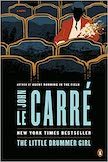
Genres: political fiction, romance
Keywords: Israeli-Palestinian conflict, 1970′s, spies, double agent, middle east, bombings
Copied from the original summary: You want to catch the lion, first you tether the goat. Joseph is an Israeli intelligence officer, and Charlie has been wooed to flush out the leader of a Palestinian terrorist group responsible for a string of deadly bombings. Still uncertain of her own allegiances, she debuts in the role of a lifetime as a double agent in the "theatre of the real."
Patron Saints of Nothing by Randy Ribray
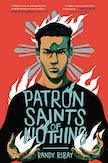
Genres: Young Adult, political fiction, realistic fiction
Keywords: Philippines, drug war, Duterte, family, murder
When Jay’s cousin Jun dies, supposedly because of selling and/or using drugs (a crime punishable by extrajudicial murder in the Philippines), Jay is convinced there must be more to the story. He travels back to the Philippines to try to uncover the truth of his cousin’s death, his family, and who his cousin really was. (Made me cry. Twice.)
Dread Nation by Justine Ireland

Genres: Young Adult, Horror, historical fiction
Keywords: Post-Civil War, zombies, racism, LBGT (ace, bi)
In this book, the Civil War was ended not because the north won but because the dead rose from the battlegrounds. Now, the dangerous work of fighting the undead falls to black and brown folks while the white folks hide behind the safety of the walls. Balancing humor against cutting commentary on race in US, this story kicks so much ass.
The Empress of Salt and Fortune by Nghi Vo

Genres: Fantasy, novella
Keywords: LBGT (non-binary), ancient China (kind of)
A cleric records the history of an empire newly fallen and remade, cutting back and forth in time between the present and the recollections of Rabbit, former handmaiden to the empress.
Fanfic
I’m sorry to report that all but one of these are works in progress. (Two of them are close to finishing, though, and likely will in 2021.)

art by @helloyellow17
envy of eden by kintsugi
Genres: xenofiction/pokecentric, trainer fic
Keywords: achronological, N, Unova, pokemon rights, myth
This fic takes to heart the idea that pokemon don’t tell lies and then gives the pokemon a platform to speak, making a case for “N was right.” It asks pointed questions about sacrifice, consent, personhood, and what it means to be a hero. Come to have your heart broken, stay for gardens and maybe a yogurt cup.
The Suicune’s Choice by An Author’s Pen

art by kintsugi
Genres: trainer fic
Keywords: Hoenn, OC, pokemon rights, myth, Suicune
Don’t let the title fool you: it is Hoenn fic (with some Johto mythology). It’s about a sweet boy at the end of his training career who has a religious epiphany at the worst possible moment (OR the best one?) and ends up on a path of no return.
Dragon’s Dance by An Author’s Pen
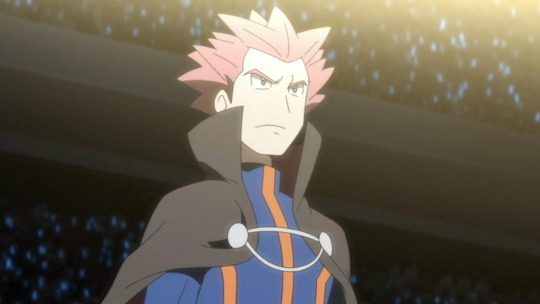
Genres: trainer fic, journey fic
Keywords: Johto, Kanto, Lance/Wataru, Team Rocket, dratini, pre-canon
He started from the bottom, now he’s here: a tale of Lance’s rise from child exile to leader of the Elite Four. All he needs to become strong is a big dragon or two, right? Right??
Broken Things by Vulterine Queen

Genres: trainer fic, journey fic
Keywords: OC, Alola, A-vulpix, LGBT, trans, camping, apocalypse, abuse, psychics, alt-earth
Three kids with Problems(TM) travel across Alola, camping, bickering with each other, and slowly (slowly!) becoming less-shitty people.
Salvage by Negrek

Genres: trainer fic, pokemorph
Keywords: mew, mewtwo, Team Rocket, black comedy, horror
The child is not quite human and not quite pokemon, but it’s all trouble. Its quest to rescue Mew from the Rockets forces it to team up with some unlikely friends (this is definitely the wrong word). This quest has a body count.
Those Who Will Inherit the Earth by love
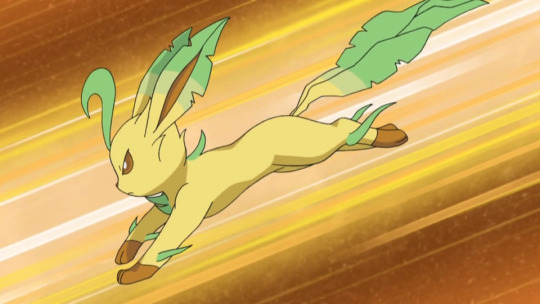
Genres: PMD
Keywords: environmentalism, horror, deal with the devil, leafeon, completed
Poppy the leafeon doesn’t want much: to spend time with her friend Lavender and to take care of the natural world. But the Guild’s attitude towards conservation (it’s not interested) forces her to take a much more aggressive approach to protect what she loves.
Parliament of Steel by girl-like-substance

art by Cooltrainer Jim
Genres: xenofic
Keywords: Jasmine, magneton
Told from the perspective of a massive magneton hivemind, this fic explores personhood and trust with some very cool world-building thrown in.
Another Verse by Farla
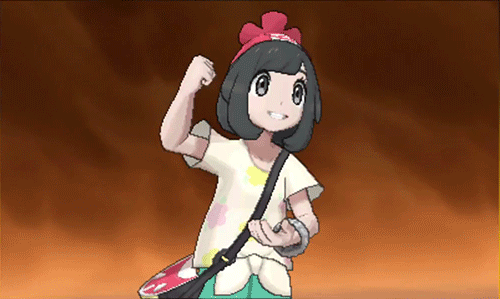
Genre: trainer fic, journey fic, novelization
Keywords: horror, Alola, food
Farla’s speciality is using canon details to shed light on the fridge horror canon implies but sweeps under the rug. Bonnibel is a good trainer and she’s having a great time. And lots of snacks. A misery tour of Alola with delicious darkness.
3 notes
·
View notes
Text
The Tale of Steven - Outline & Review
The Tale of Steven is a wonderful, timeless-feeling storybook about identity, authority, and finding your own way. It's got an innovative design that requires the reader to turn the book upside-down, sideways, and right-side-up to get the whole story, sometimes all on the same spread of art and text, and as we come to find out ultimately, this "tale of Steven" really is STEVEN'S story.
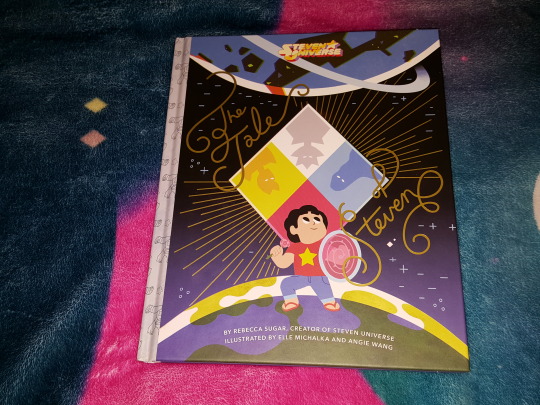
We begin with White Diamond, matriarch of the Gem homeworld, setting the stage--and not only does she frame the other Diamonds uncharitably (especially the littlest Diamond, Pink), she even sets the tone by admonishing THE READER straight away, scolding us to turn the book her way to read her words. (We must turn the book upside-down to read her perspective. Very nice.)
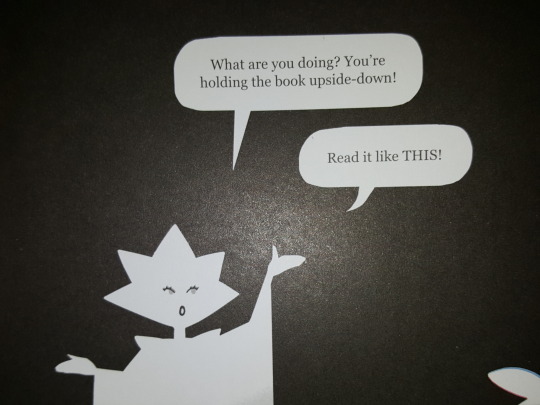
As we listen to White Diamond tell us how ridiculous Pink Diamond is and frame her as "impossible to understand," we also see exactly why Pink felt driven to leave her home. White apparently appointed herself the authority on keeping Pink in her place, and we're treated to White's huge pale hands holding little Pink Diamond in her tiny pink throne, “right”-side-up. White's perspective is proper, and she is to be praised, you see, for understanding that Pink's desires and attributes are not worthwhile and need to be forced out of her. Pink is shown as having run away to Earth and reinventing herself as a new Gem: Rose Quartz. Suddenly, we are able to turn the book sideways and see what she's thinking too. (White does NOT approve.)

The Earth, where Rose Quartz is allowed to love herself and love her surroundings, is simultaneously called "grotesque" by White, and we're seeing the same planet through two sets of eyes. White sees Rose as "stubborn" and "absurd," while Rose just gives us an aside about not listening to White if we don't want to and giving us a choice to read the book her way. As Rose continues to depict rainbows and falling in love with a human--Greg Universe--White is getting angrier. She shrieks, "You're ruining my story!" Rose, rightly, replies, "This isn't your story."
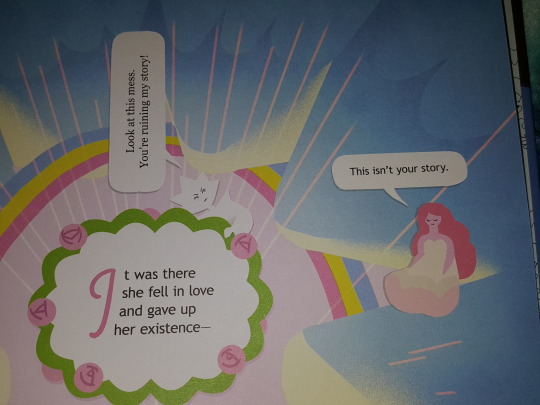
Soon, Rose has bequeathed her Gem--the center of her being--to her half-human son, Steven, with the consequence of ceasing to be herself. Baby Steven appears with his father and Rose Quartz's three companions--Amethyst, Garnet, and Pearl. White Diamond finally abandons trying to narrate this story, escaping with a vindictive comment and an attempt to frame Rose as simply Pink Diamond hiding "inside an unwitting creature." Rose's perspective expresses that she wanted her son to experience the love and acceptance she never received. And then, Steven's perspective pops onto the scene. We can now turn the book fully right-side-up to read his tale.
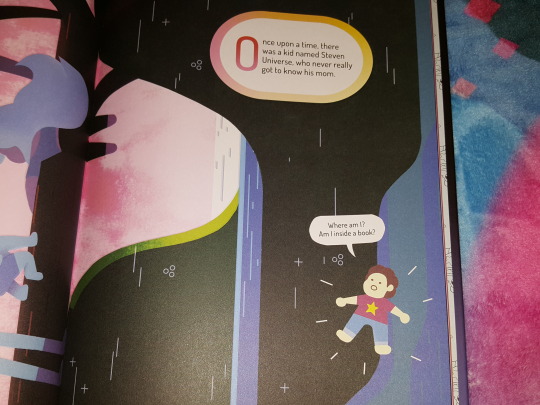
As the story slides fully into Steven's perspective, Rose's hopes for him still line up on the sides of the pages, longing for him to experience kindness, to never know the awfulness she went through on Homeworld, to never have to feel the criticism issued by the other Diamonds, and to be able to tell his own story one day. Steven reflects on Rose's influence on his life, how he's heard about her and the more truth he's discovered the more everything frightens him. There are many perspectives, he recognizes. Perhaps there is more than one way to read the story.
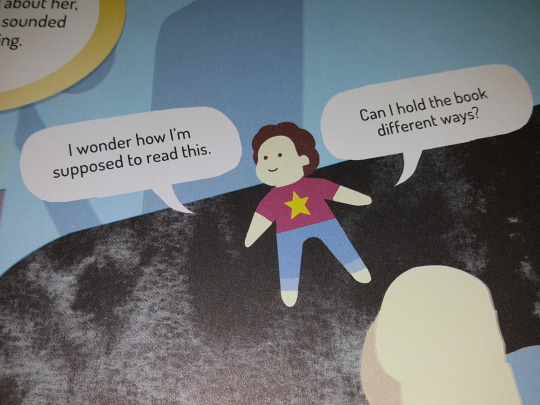
White's perspective, upside-down now, returns alongside all this. She suggests "Pink" has come crawling back to turn the world the "right" way again, and she's puzzled by Steven's appearance, but she's determined to rescue Pink from herself by separating Steven from his Gem. Meanwhile, Steven's been wondering what his relationship is to Pink and Rose--is she inside him? Is he actually her? What's real?

But they all learn the truth when Steven's Gem reveals that he was also Steven inside there. All along, he was himself and no one else. This is, and has always been, his story, and he has been right about who he is.

Several wordless frames depict Steven's two aspects finding each other, reconnecting, and becoming one again. Newly confident in who he is and having asserted as much in the face of crushing authority, Steven declares, "This way feels right to me." The orientation of the book AND the definition of himself are the focus here, and for the first time, White begins to consider that her perspective was the wrong side up in someone else's story.

Steven closes by claiming the book as his own (writing his own name in the "This Book Belongs To" space, which is superimposed over a Diamond Authority symbol with the Pink Diamond on top instead of on the bottom). The end dedication is made out "To Trans & Gender-Expansive Kids."

To reflect on this sentiment and the rest of the book, I will say that a large portion of the Steven Universe fandom already recognized some threads of a trans allegory in the animation this is based on. Steven, though he is not specifically depicted as a confirmed trans character in the show, does not demonstrate or seem to experience toxic masculinity in association with his quest to be powerful, and has no qualms about using symbolism, iconography, and apparel that is more commonly associated in today's Western society with women and girls (e.g., the color pink, flower symbolism, protective and defensive rather than aggressive and offensive behaviors, wearing jewelry and dresses occasionally without it being a gag). His assertion that he is Steven and not Pink Diamond or Rose Quartz has many parallels with a common trans narrative--including pronouns that the Diamonds refused to respect--even though it is also its own thing since human beings do not have to defend that they are not literally their mother.
They do, however, frequently struggle with authorities in their lives "correcting" them on who and what they are "for their own good," brushing off the seriousness of the misery it causes, and these children do find themselves forced to wear clothes, use names, and adhere to roles that do not match who they are. They even sometimes hear authorities mourn the "loss" of a different-gender version of them and accuse the child of being selfish for wanting to manifest their truth instead of being the son or daughter the parent thought they had.
It is my deepest hope that authorities like this can learn to turn the book around.
It is so important for children to learn that they ARE the authority on their identity, and while some well-meaning authorities in their lives may frame their identity as a phase or a fake, they do not have to accept this view of the world, or even that it comes from a loving place. White Diamond did not sound like a stern but caring figure to me. She sounded like a tyrant who is convinced of her own correctness, determined to gaslight and shame Pink Diamond into becoming the person SHE wanted. Love is listening. Love is nurturing. Love is seeing pleasure and pain and letting those things guide you in supporting a happy existence. Kids whose gender is complicated and young people who develop misunderstood identities need books like this to center them in their own stories and empower them to show others how to read their book.
Except for the section of the book where Steven's organic self and Gem self are separated and re-combine, the message is solid for readers who have not watched the show. But because of how important that wordless series of panels is and how much background you actually have to have to understand what's happening there, I recommend this book primarily for fans of the show who have seen "Change Your Mind" and the episodes that support it. The other depictions are more powerful and illuminating for those who have context from the show also, but the main purpose of the book can be readily understood without that background.
If you haven't seen the show, all you need to know is that Steven is a hybrid Gem/human who has a gemstone in his human body, and it gives him superhuman powers. Gem characters generate a body from their Gem, while Steven's body is organic and presumably NOT generated from the Gem. White Diamond removed Steven's Gem from his belly, expecting Pink Diamond to take form out of the Gem. She thought his organic half was just a human that the Gem was stuck in. But instead, a Pink Steven emerged and went back to his organic self to merge again, proving that he is Steven, not someone else, through and through. And he truly loves and knows himself.
A couple other notes fans of the show might enjoy: White Diamond's hypothesis that Pink Diamond was "hiding in an unwitting creature" is really interesting--she knew what Steven was but believed he was just a normal human hosting a Gem. Interesting. White's disdain toward Yellow and Blue for "spoiling" Pink is an interesting addition to what we know about her, too. Pink is pictured standing on her hands on her throne, upside-down, which is interesting since it's both "silly" and an expression of her right-side-up perspective (since, when we obey White, we're reading the book upside-down!). White's commentary that she kept Pink in line is also interesting, considering we've seen way more of how Yellow and Blue treated her and none of that was very nice either (yet they're the "nice" ones in this story, indulging her even though we know they abused her). There's a really cute image of Rose lounging on the beach with Greg in what looks like a swimsuit. Connie is in a frame with the Gems looking through a telescope. And there's a frame with Garnet holding pink and blue butterflies.

Inventive, beautiful, moving, and so necessary. Buy a copy. Let kids turn the book around.
[SU Book and Comic Reviews]
253 notes
·
View notes
Text
#729: ‘Gigi’, dir. Vincente Minnelli, 1958.
The Studio Era of the Hollywood musical is a strange time to write about - it contradicts itself in a lot of ways, and marries joyful escapism to some pretty dark interpretations of social norms. There aren’t many studio musicals I’ve liked better the second time around, and for most of them they get progressively worse with every screening (I watched Singin’ in the Rain yearly when I was teaching and it got harder and harder to sit through. I was very pleased that the stage production in the early 2010s added a musical number to redress some of the Lina Lamont character assassination. More on that another time!)
Gigi, however, was a new experience for me. The first time I watched it, I was bored stiff. Usually when this happens, it’s because I’ve been paying it too little attention. I thought that by watching it again for this blog, I would understand it better.
I was right. I understand it better. Unfortunately, it’s just as bad as I thought it was; I just understand why it’s so bad now.
So, a bit of context: Gigi won the Best Picture Academy Award, a fact that struck me as impossible until I realised I’d never heard of most of its competitors. It also won enough other Oscars to set a record for the time, including Best Director for Minnelli, although none of its actors were even nominated. The film is set in early-twentieth-century Paris, and chronicles the developing romance between Gigi (Leslie Caron), who is training to follow in the family tradition of becoming a mistress to the wealthy, and Gaston (Louis Jourdan), a bon vivant who seems to be going through the motions of the wealthy lifestyle. The plot bounces between the traditional modes of the romantic musical: Gigi wants true love, rather than the meaningless dalliances that are proposed as all Parisians are after, and Gaston is looking for something interesting in life, but both are caught up in the social expectations that limit them in what they can accomplish on this front.
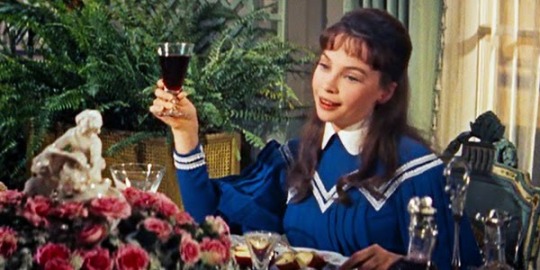
Let’s start with the main reason Gigi isn’t an enjoyable watch: it’s tasteless. The first major plot point of the film (and the closest thing we get to a conflict in the first hour) is when Gaston finds out that his current amour is flirting with her ice-skating instructor. He rejects her publicly, and she attempts - and apparently not for the first time - to commit suicide. The film treats this as a jolly affair, and a significant turning point in Gaston’s career as a womaniser: champagne corks pop and, despite Gaston’s refusal to take any joy in his former lover’s near-demise, the event is quickly forgotten. Honoré (Maurice Chevalier), who lays on the Frenchness so thick you’d need a truffle-hunting pig to find any real emotion, opens and closes the film with a somewhat skeezy song about how wonderful little girls are, and the big realisation moment for Gaston about his love for Gigi comes in the middle of a song that wobbles wildly between infantilising her and sexualising her. There are a lot of moments in the film that are just flat-out uncomfortable.
Most of this comes from the general inappropriateness of the source material for a musical in the first place. Colette’s novella had already been shopped around Hollywood when Arthur Freed came on the scene; most of the people involved were battling the Hays Code, which is unsurprising given that the protagonist of the novella is sixteen. The final film ‘gets around’ this by never mentioning Gigi’s age explicitly, but it’s clear from the fact that she’s still in school that this was one aspect of the book that wasn’t completely reconstructed.
Gigi was the last of the major Arthur Freed-produced MGM musicals, and although there is no published information that suggests there were problems during production, looking at the final film it’s hard to believe that anybody involved was doing more than the bare minimum. Bosley Crowther, reviewing the film in the New York Times, said that it “bears such a basic resemblance to My Fair Lady that the authors may want to sue themselves.” He didn’t mean this as a criticism, but it’s absolutely damning when you look at the fine details. Both these musicals feature a grumpy man rescued from his misanthropic or ennui-filled worldview by a cheery and childlike woman whose age hovers uncomfortably on the line of legality, in both these musicals the man realises his love in a song that moves from spurning and insulting the woman to being patronisingly affectionate, and the last act of each revolves around each person trying to leave the other for perfectly legitimate reasons before eventually relenting. Both musicals have a chorus number, performed by the MGM Chorus, where they appear as upper-class commentary (’The Gossips’ and ‘Ascot Opening Race’).
And in every instance, Gigi is the inferior copy of the original. Even when dubbed, Gigi’s songs are gratingly simple and Louis Jourdan never rises above Rex-Harrison-style patter singing - although at least Harrison was capable of a tune. It’s clear that most of the memorable songs were written for other contexts: ‘The Night they Invented Champagne’ was written as a lover’s duet but here is handed to Gigi and Gaston before they’re even romantically linked, as well as Gigi’s grandmother (Hermione Gingold - once again, I have a lot of praise for older women in these films, who have the talent and the sense to treat the material with the borderline irreverence it needs). ‘I Remember it Well’ was written for My Fair Lady and then tacked in here, which is why the love affair it refers to between Gingold and Chevalier isn’t mentioned anywhere else.
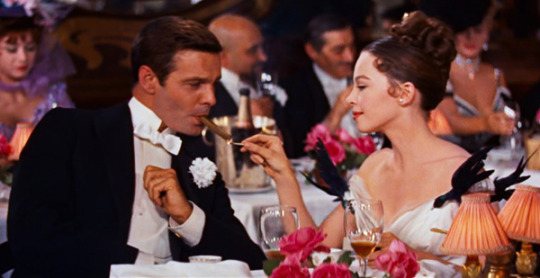
Because of all this predictability in the writing of Gigi, the film drags far more than it ought to. There’s no real conflict between Gaston and Gigi for the first 90 minutes of the film: they’re platonic, then they have feelings for each other but there’s no reason for them to be together, but neither of them seem troubled by that development. The lyrics of ‘I Don’t Understand the Parisiennes’ are vague enough that it took a Wikipedia summary for me to really grasp what Gigi’s problem with romance specifically was.
If the film had been restructured around this central problem - that Gaston and Gigi want to be together but cannot - there would be real tension before the last half-hour of the film. When this tension happens, though, it comes in the form of an idiot-ball plot, where Gaston abruptly yanks Gigi away from their first public appearance together (because he can’t bear to expose her to the gossip of society), and literally drags her home crying without explaining his motivations to her at all. If this is the kind of ‘true romance’ that Gigi so ardently desires, she can have it, as far as I’m concerned. This lack of communication between them makes the whole relationship uncomfortable to witness.
(I should mention that I see a difference between the screwball comedy plot, which these films clearly derive their structure from, and what the studio musical turns it into. In the screwball comedy, the chemistry predates the misunderstanding; in the musical, this is flipped, so the characters have no reason to be well-disposed to each other.)
There is one saving grace in the film - they co-opted Cecil Beaton to design the costumes, and that and the set design combine to inject Gigi with a sense of garish extremity that is at least fun to watch. I think this was my mistake the first time around with this film, and what I confirmed with the second viewing: Gigi is a pretty picture, and I kept digging looking for something of substance beneath it. If there is substance here, it’s not of a pleasant type. If you want a better musical, there are many others to look at, but I’d start with My Fair Lady - the same idea, the same team, but at least something approaching substance and structure.
8 notes
·
View notes